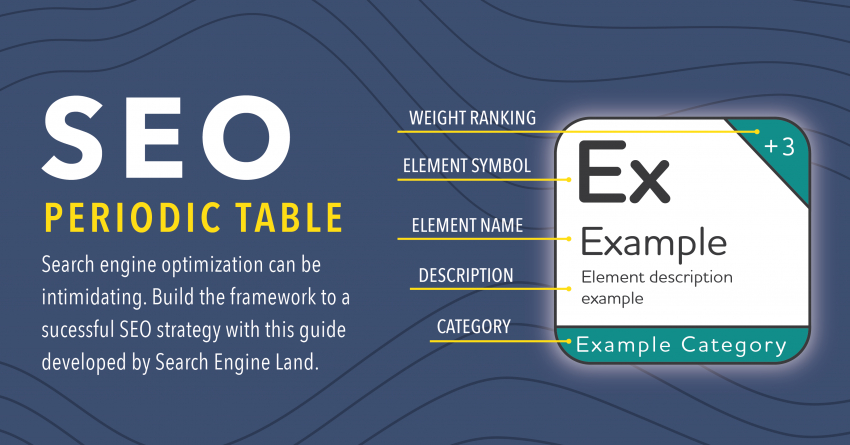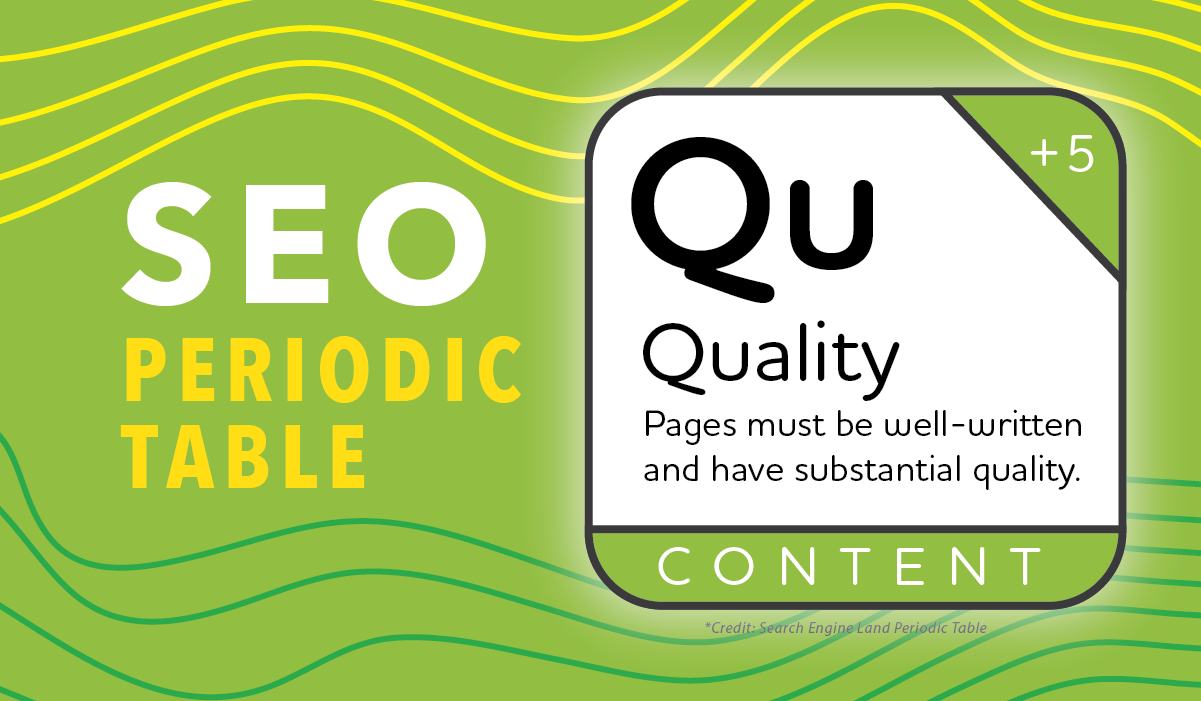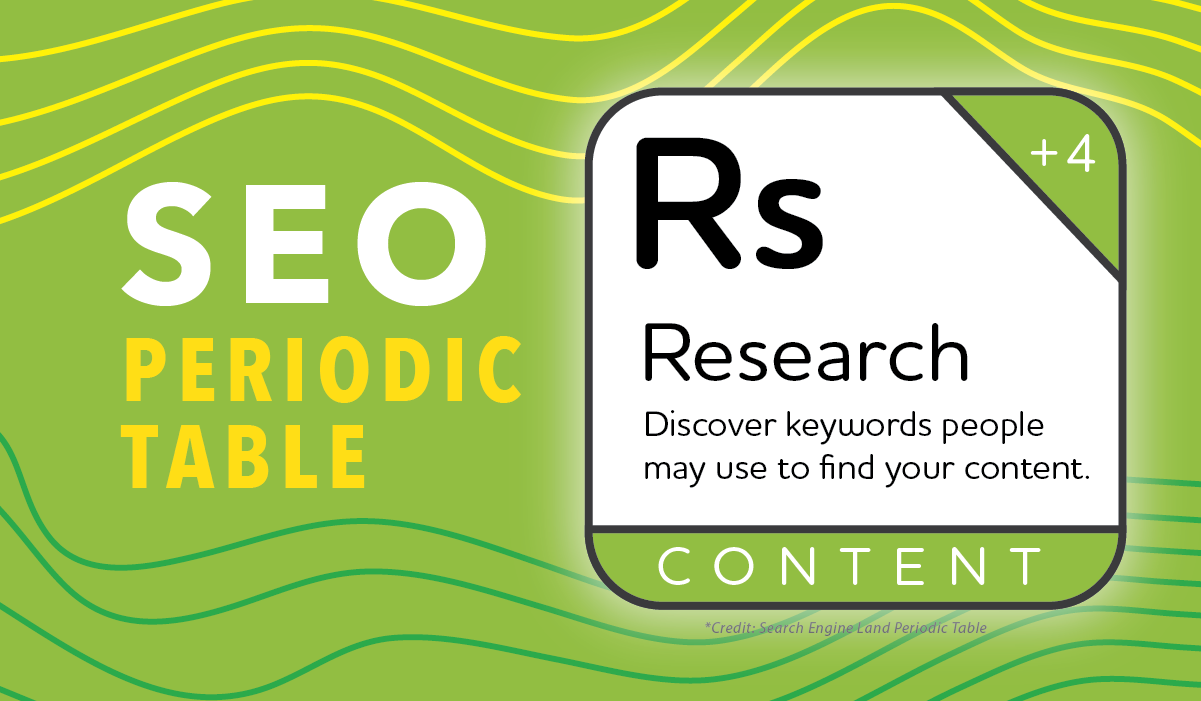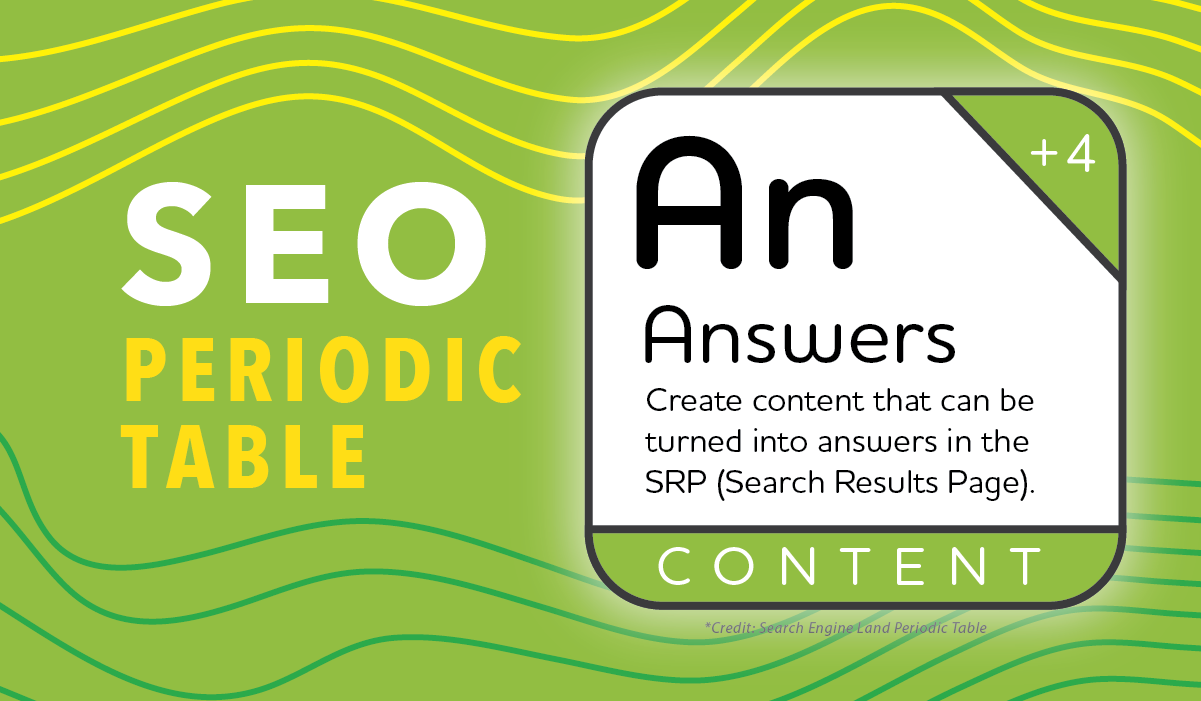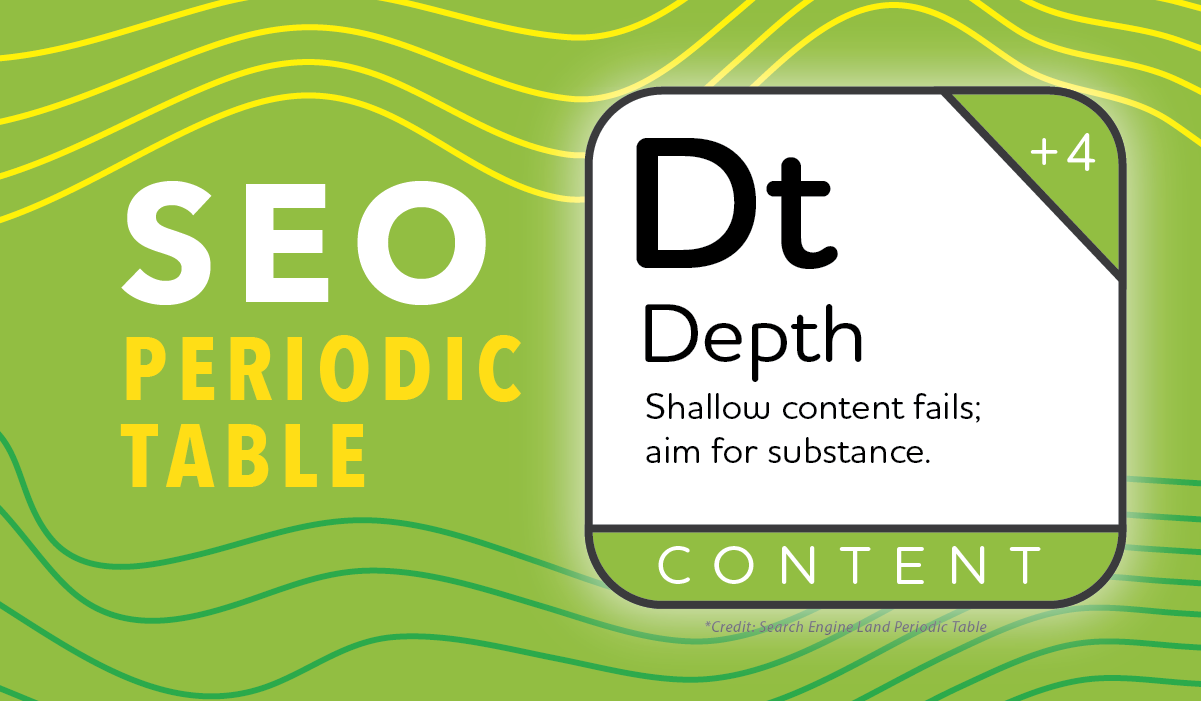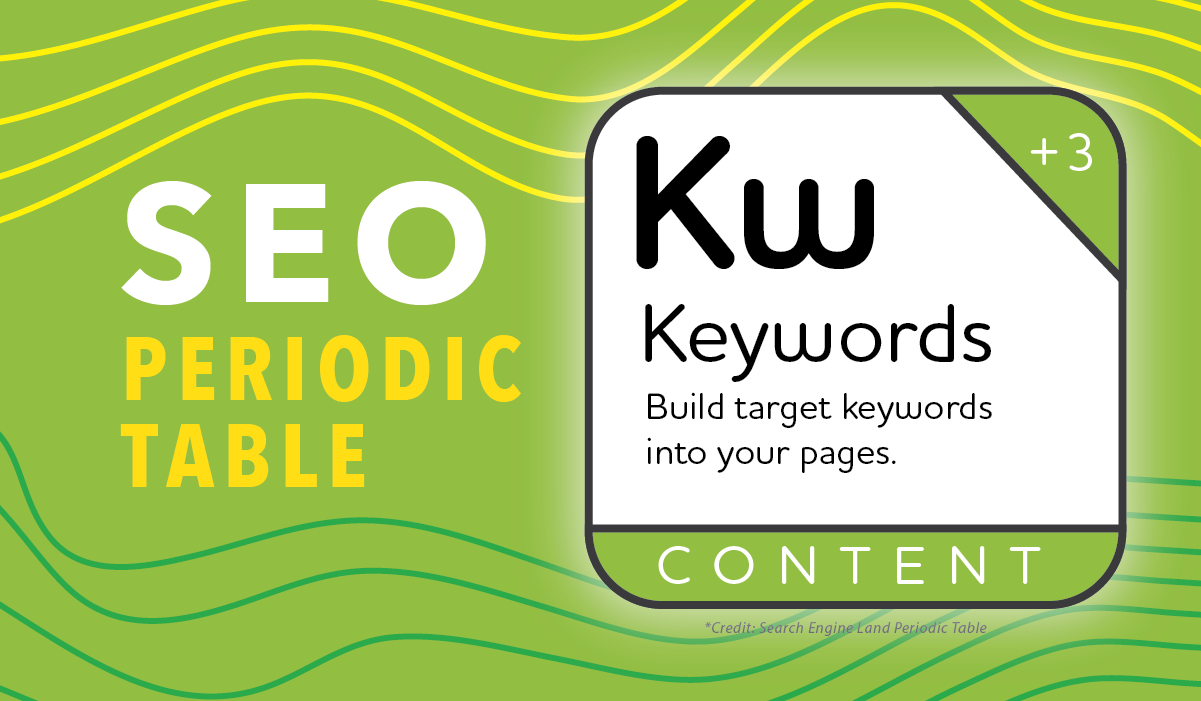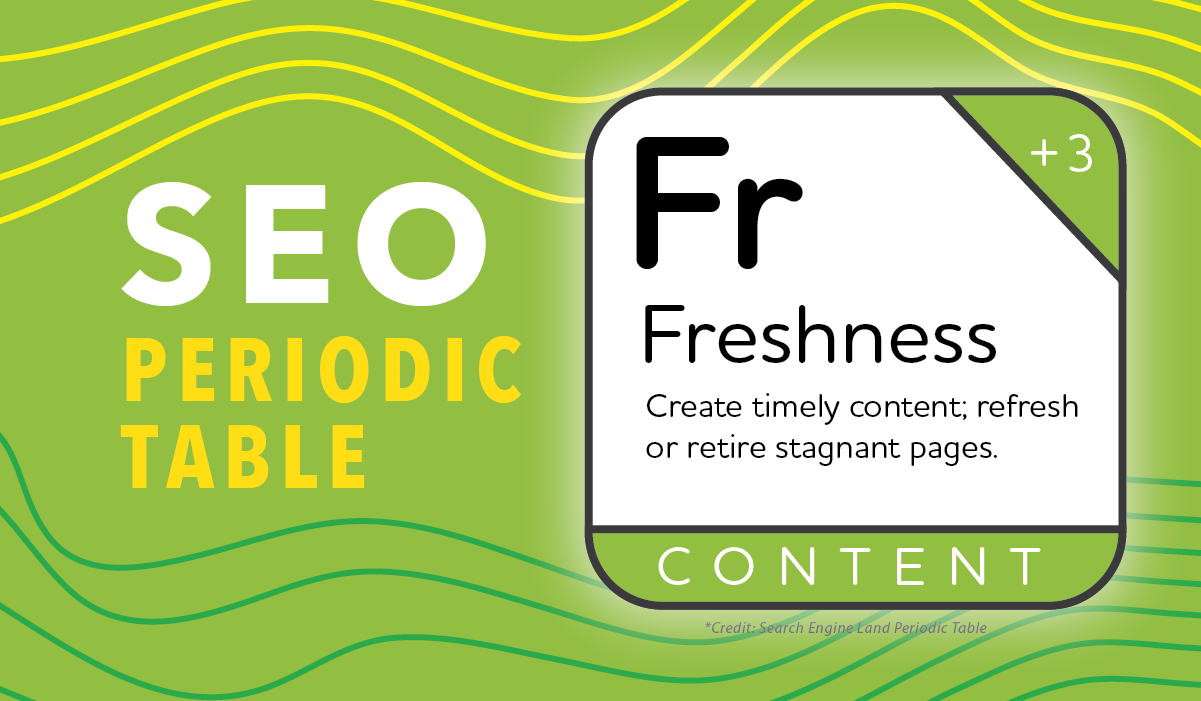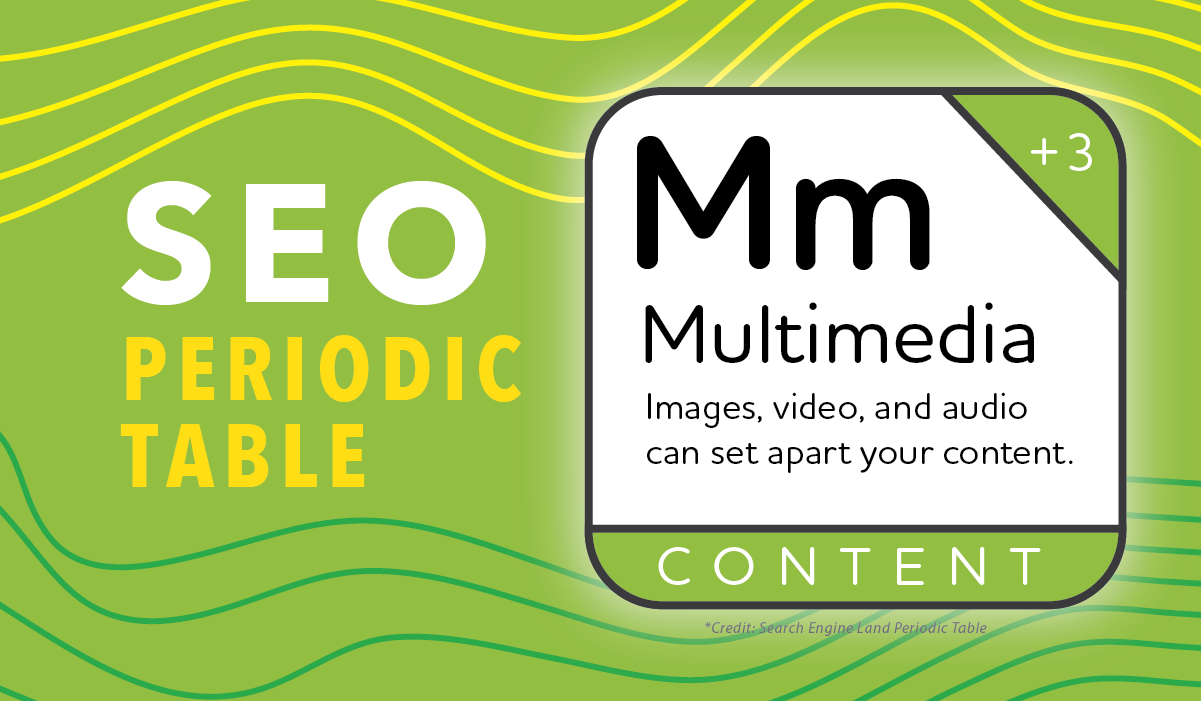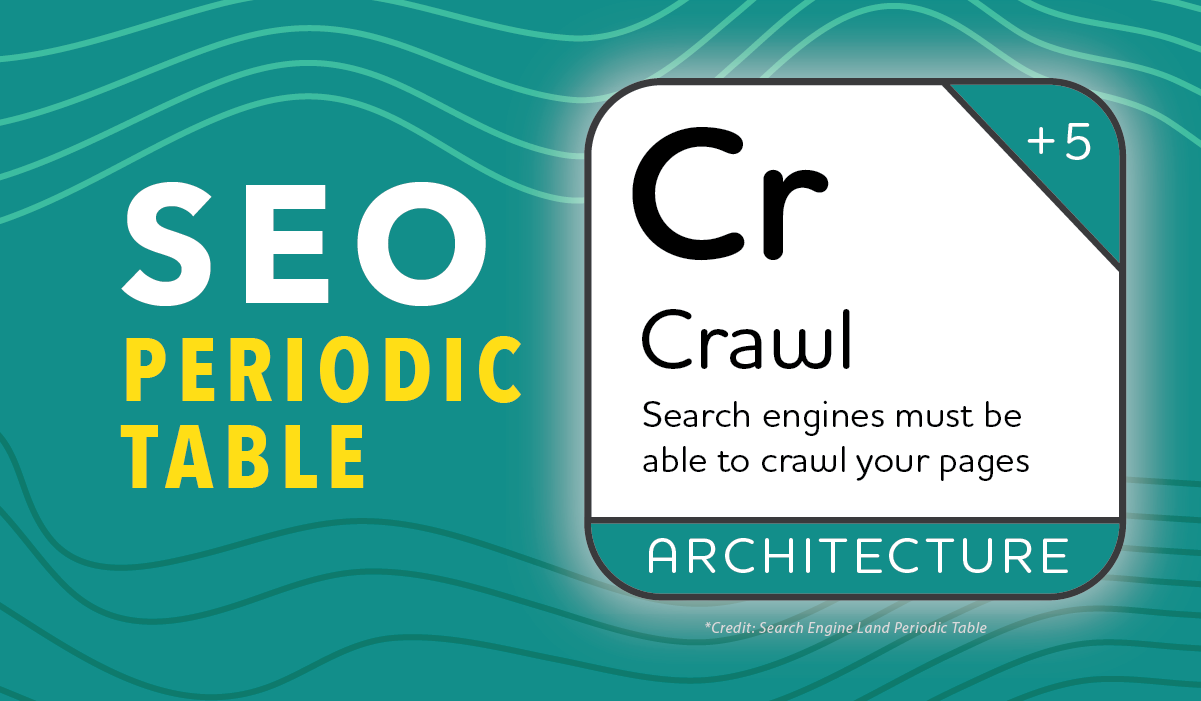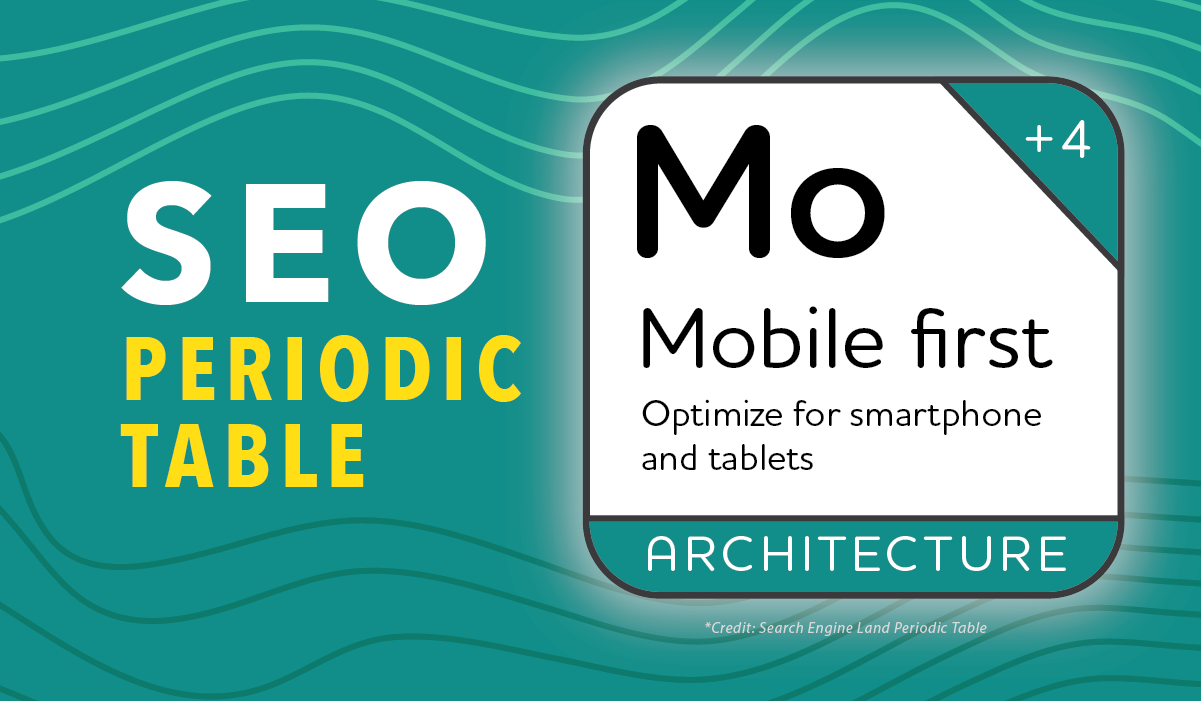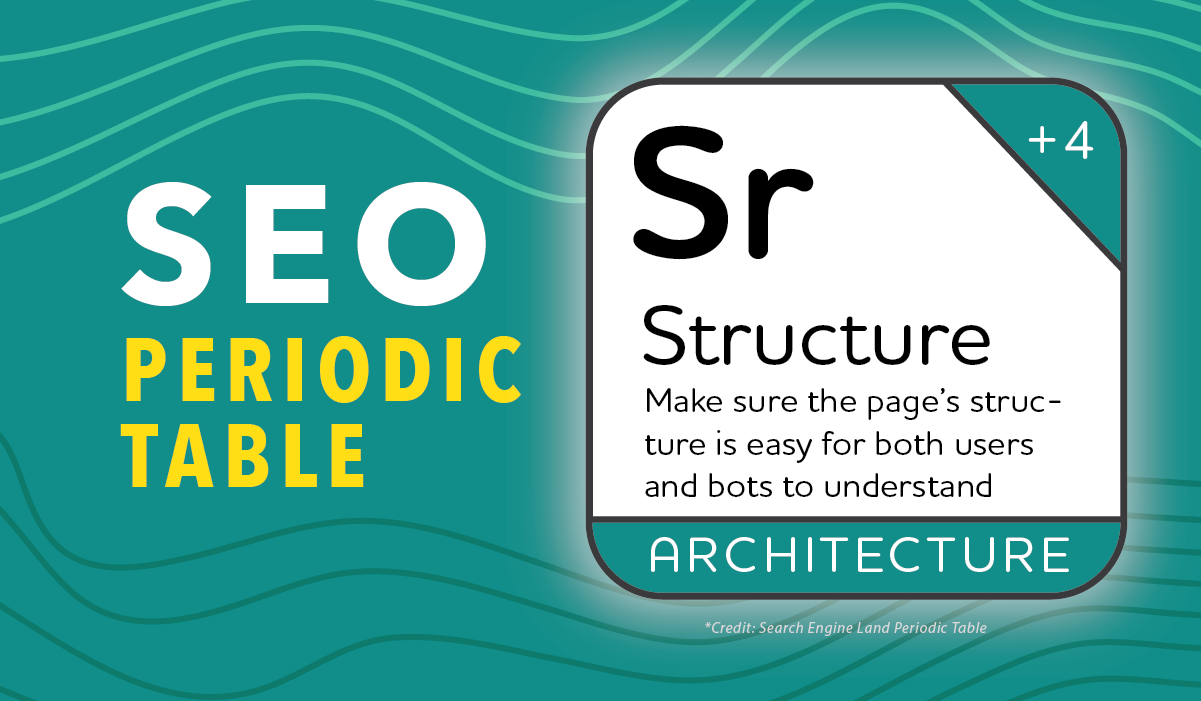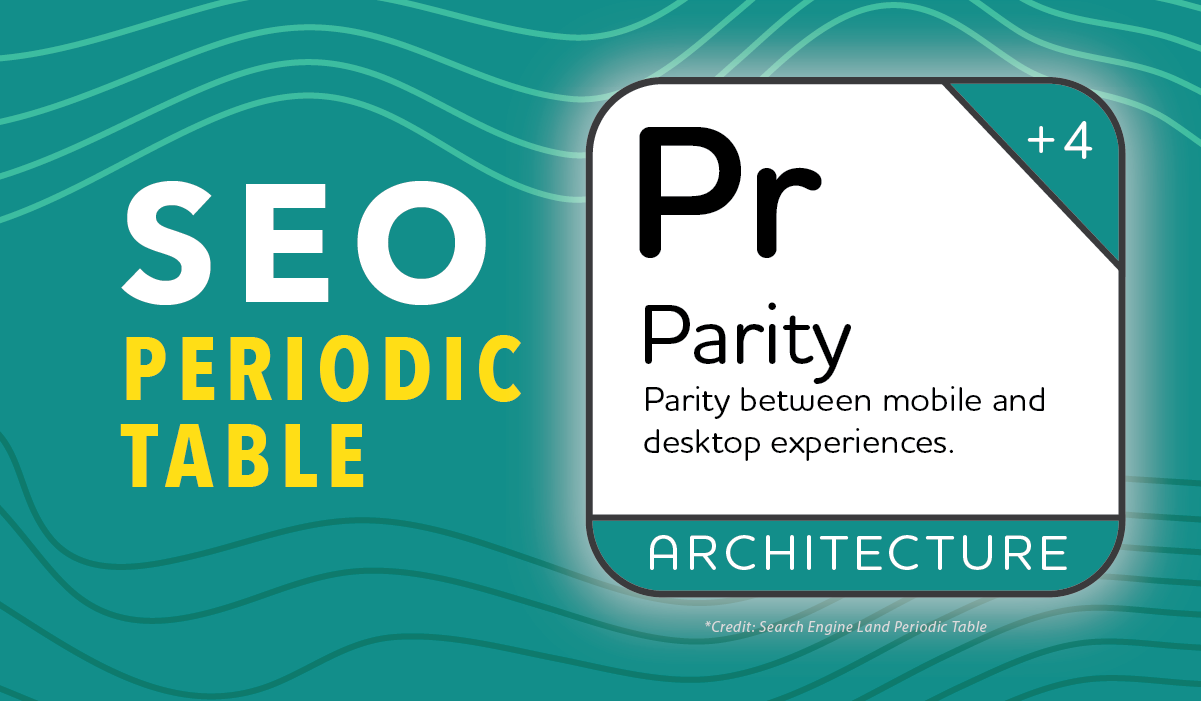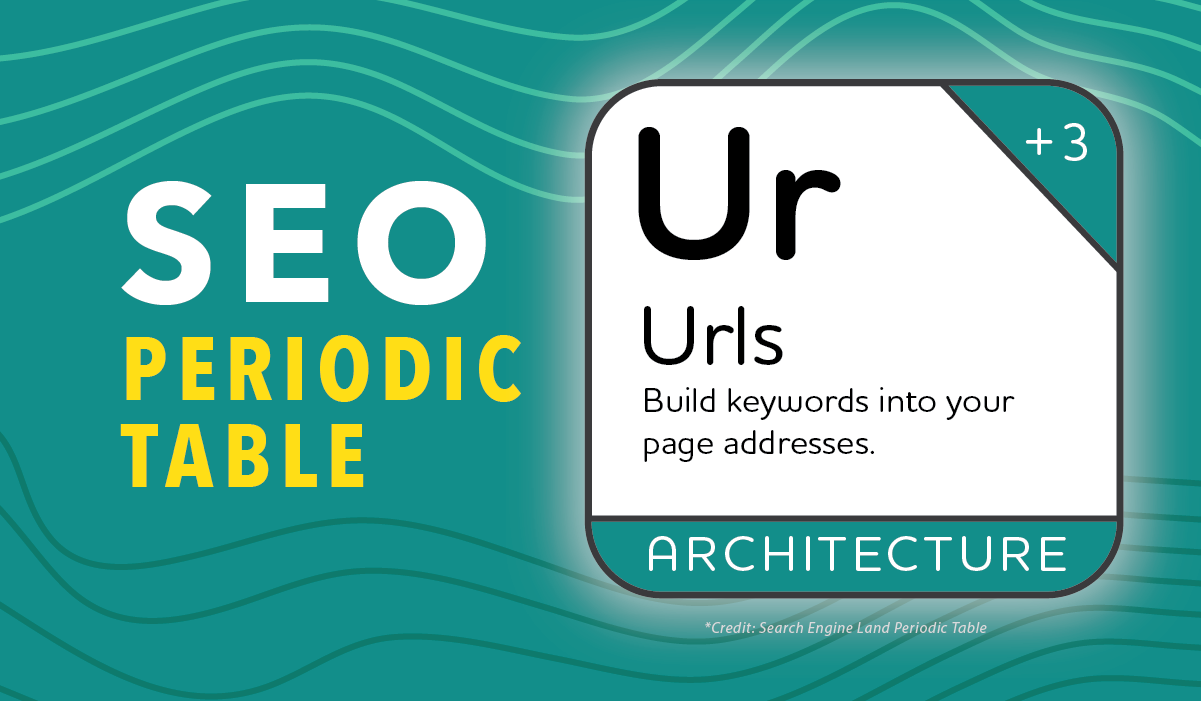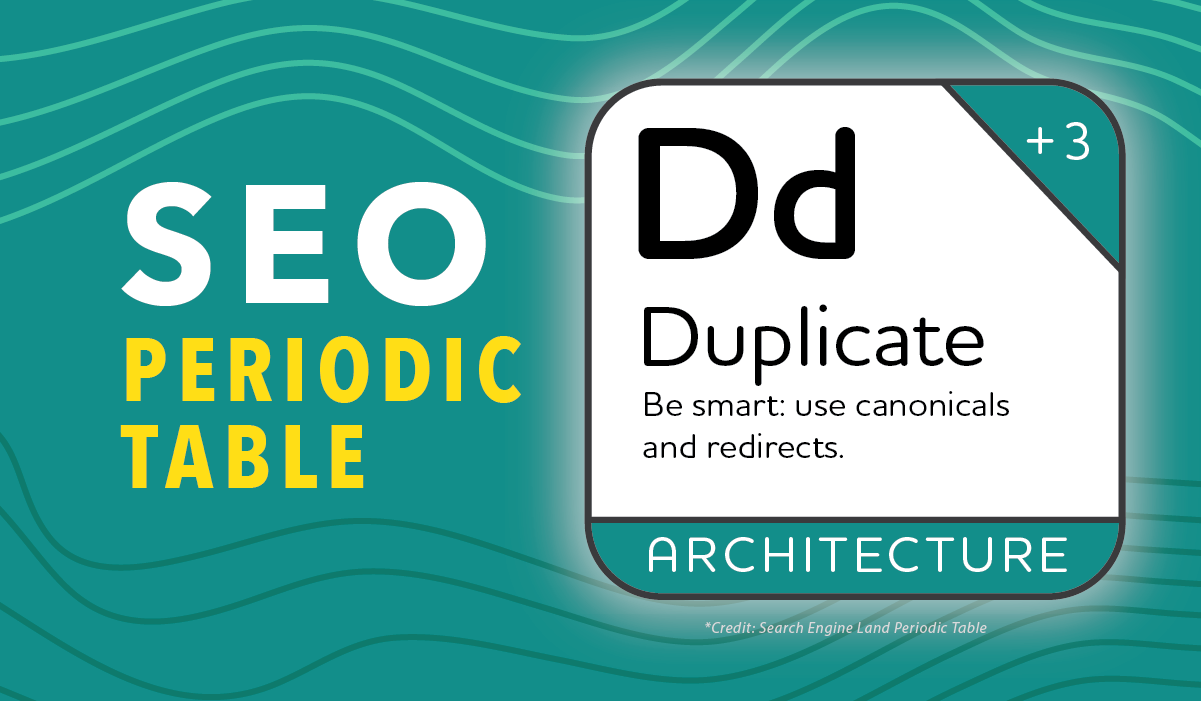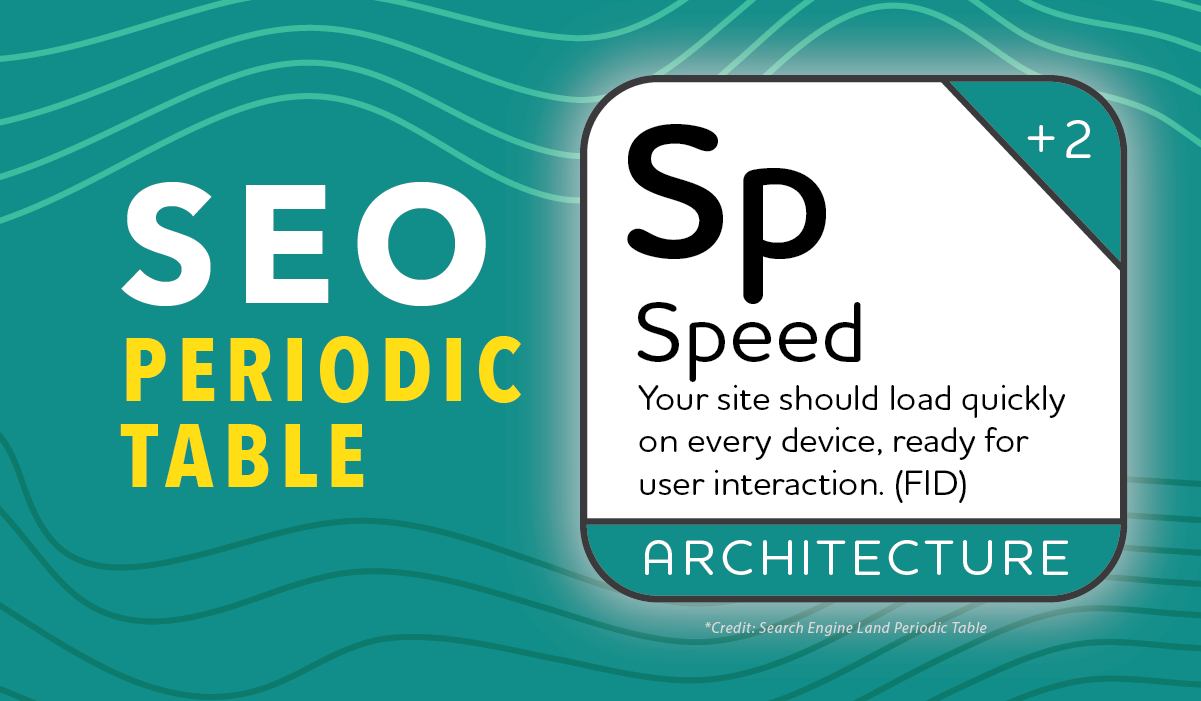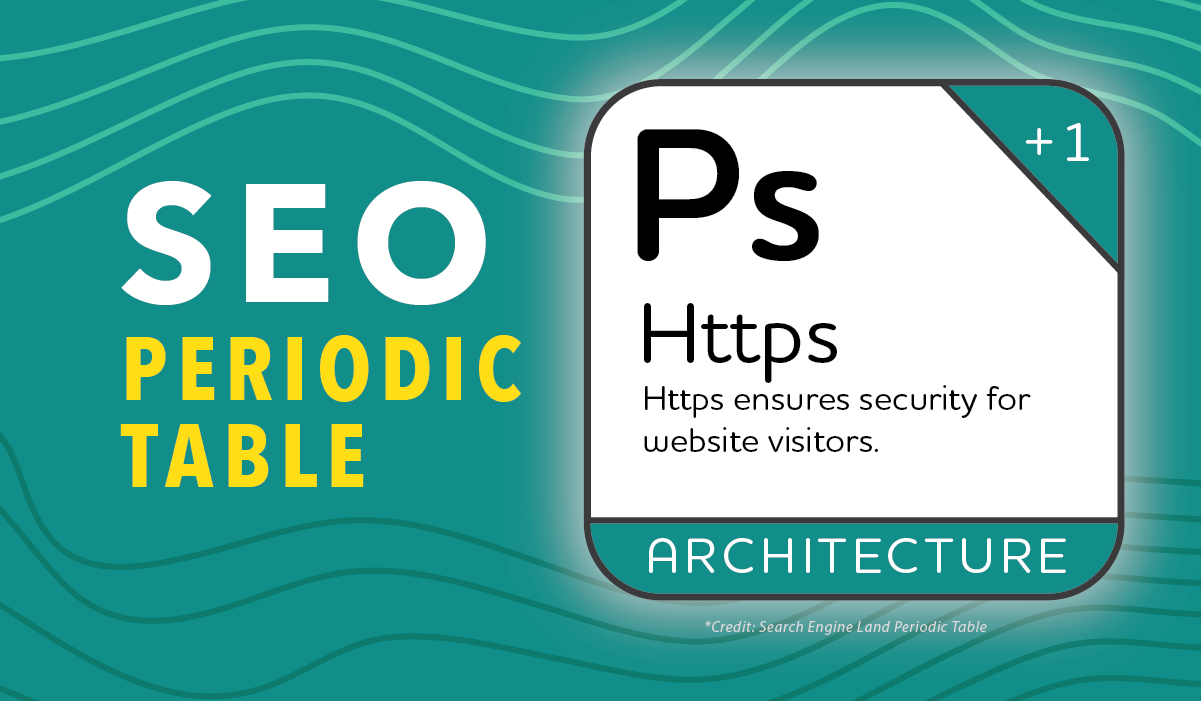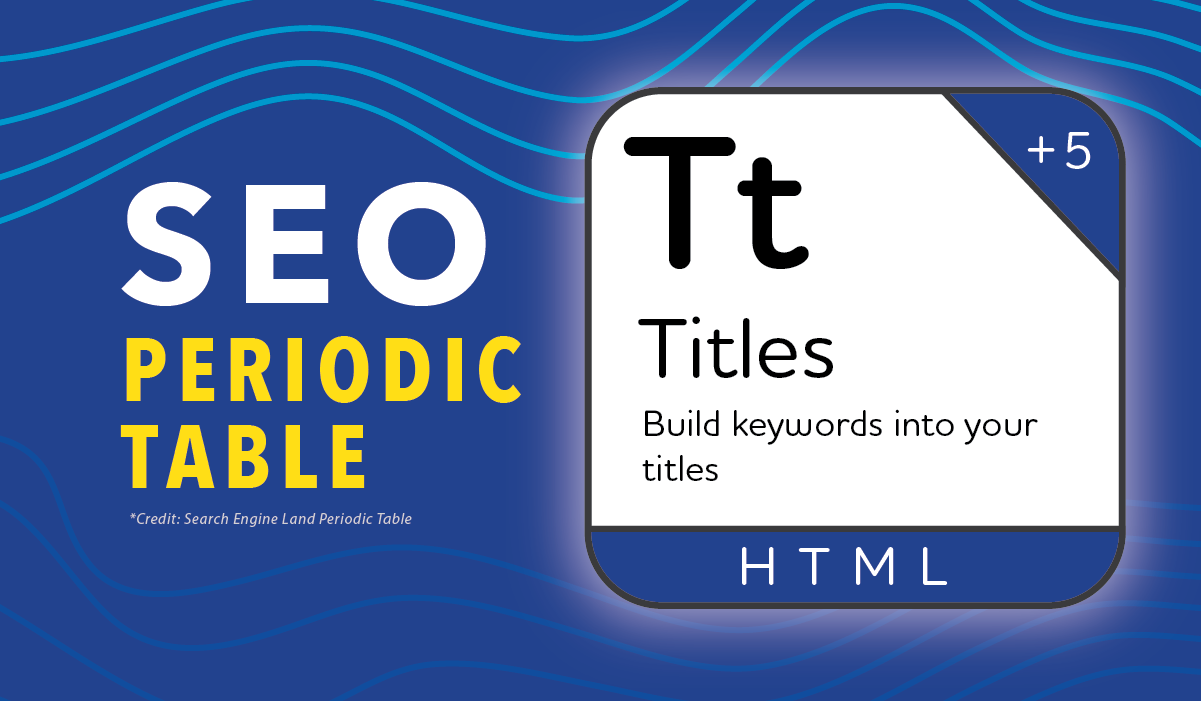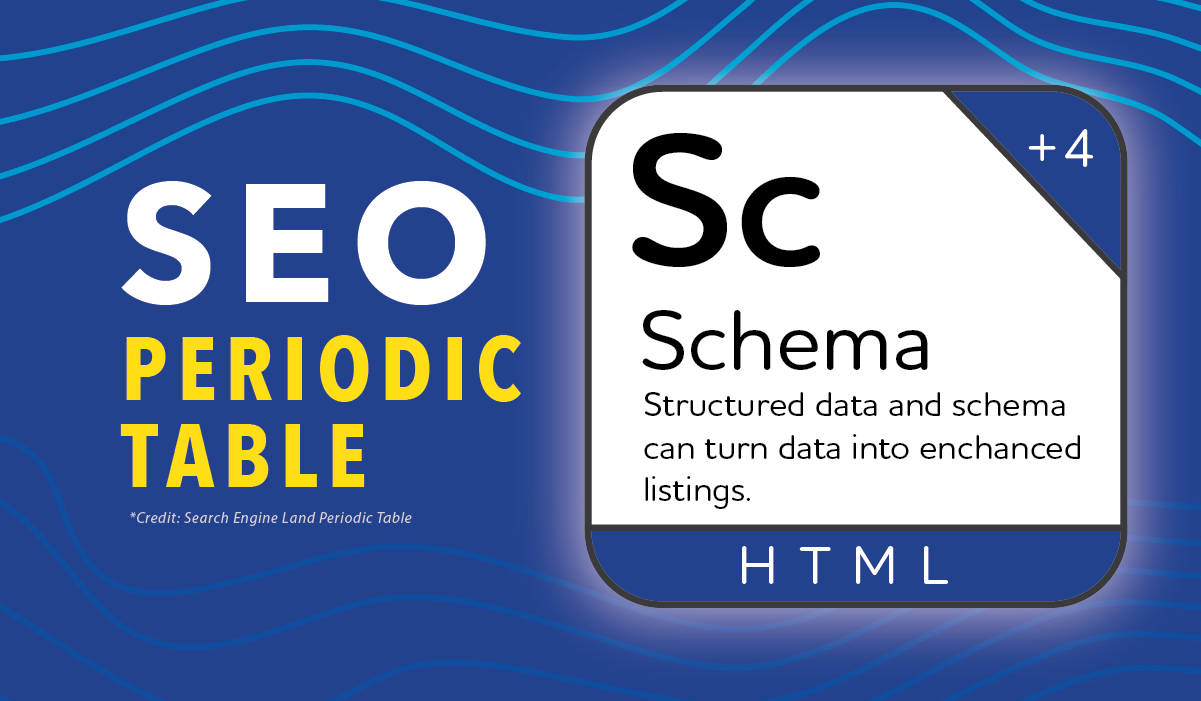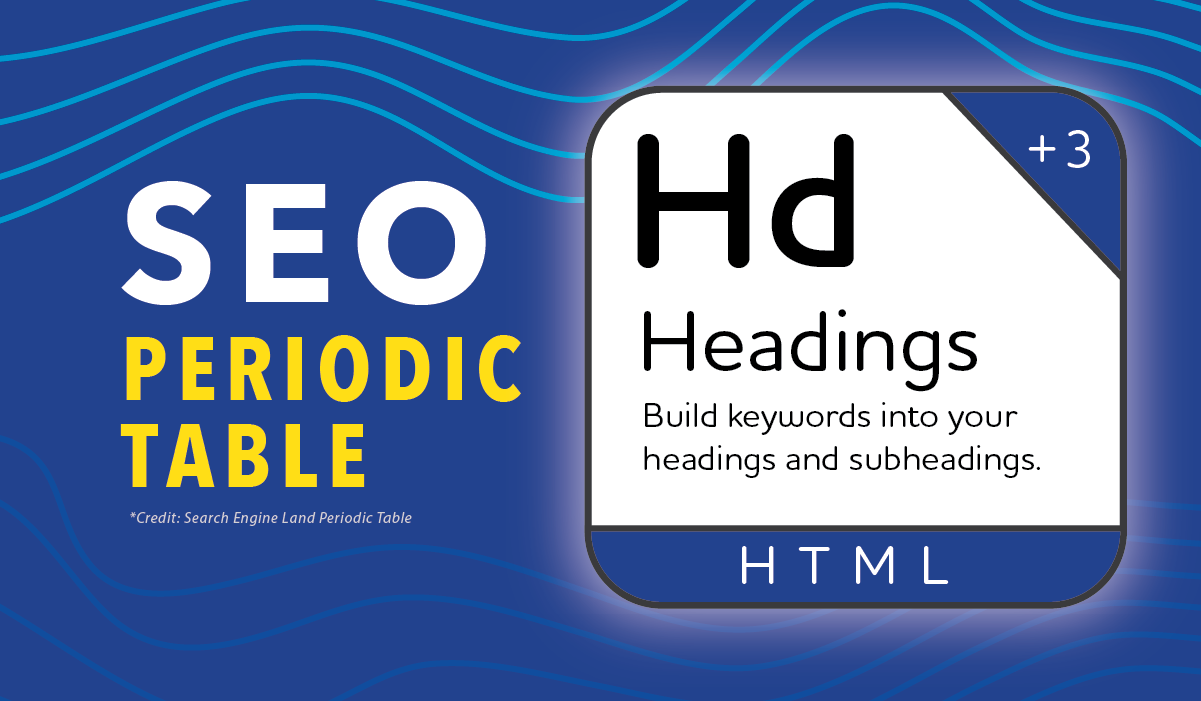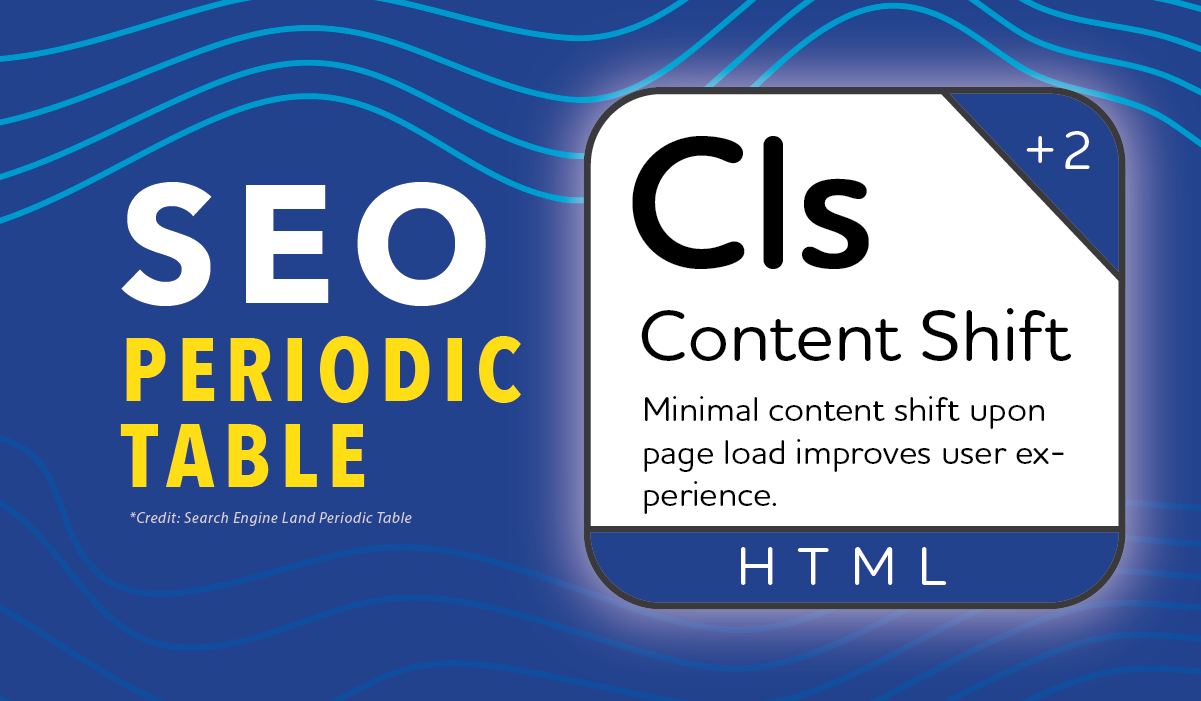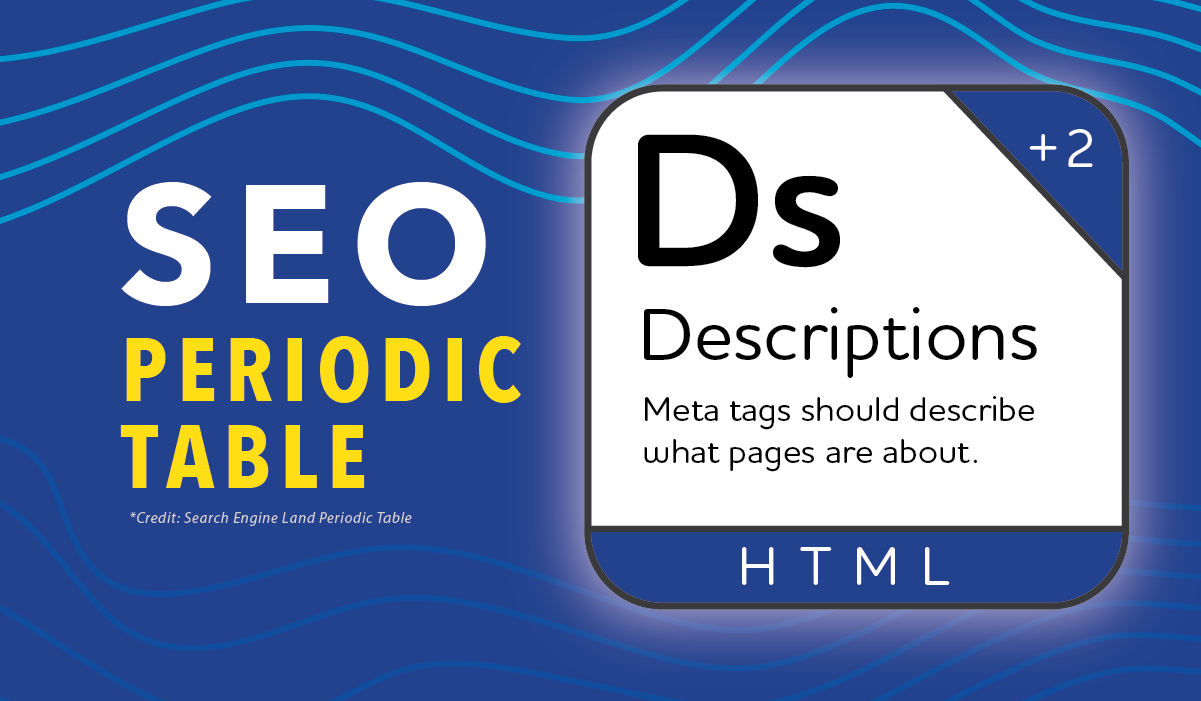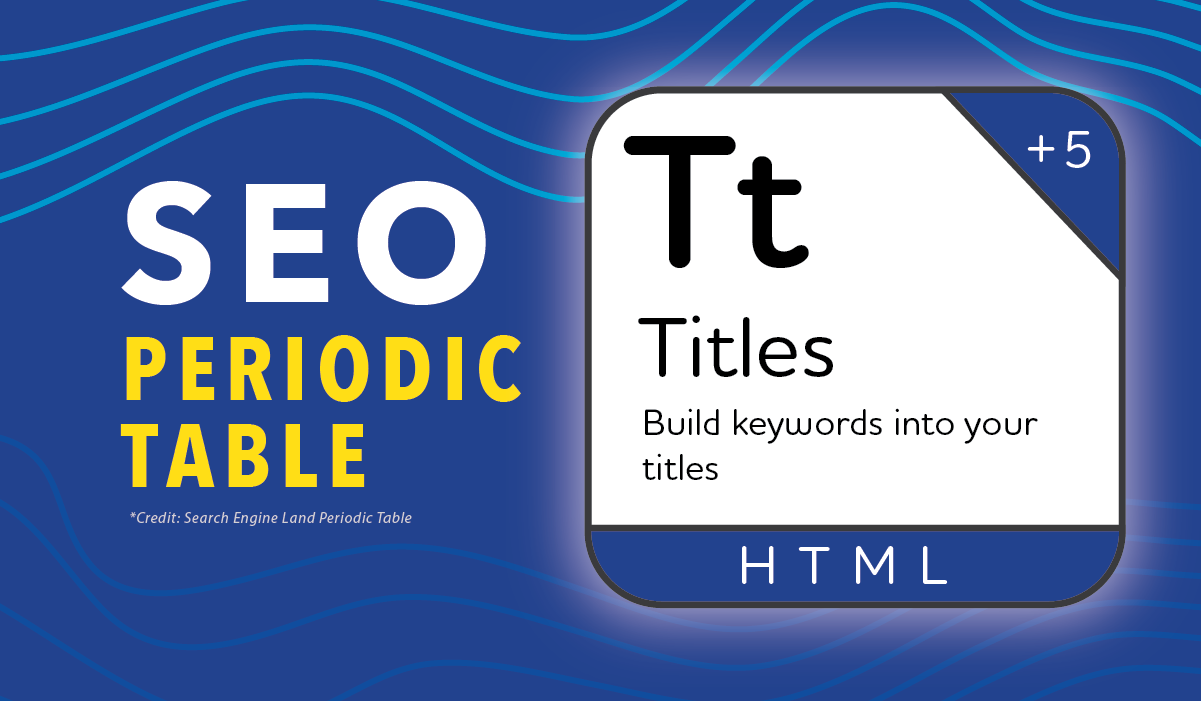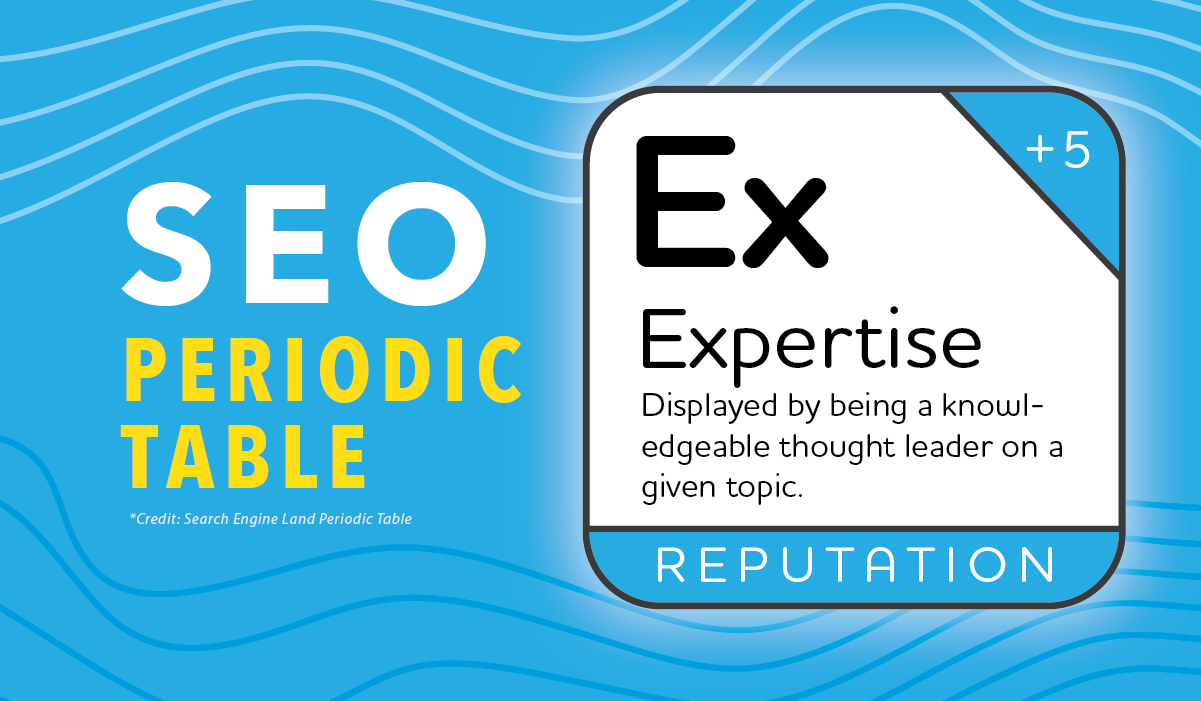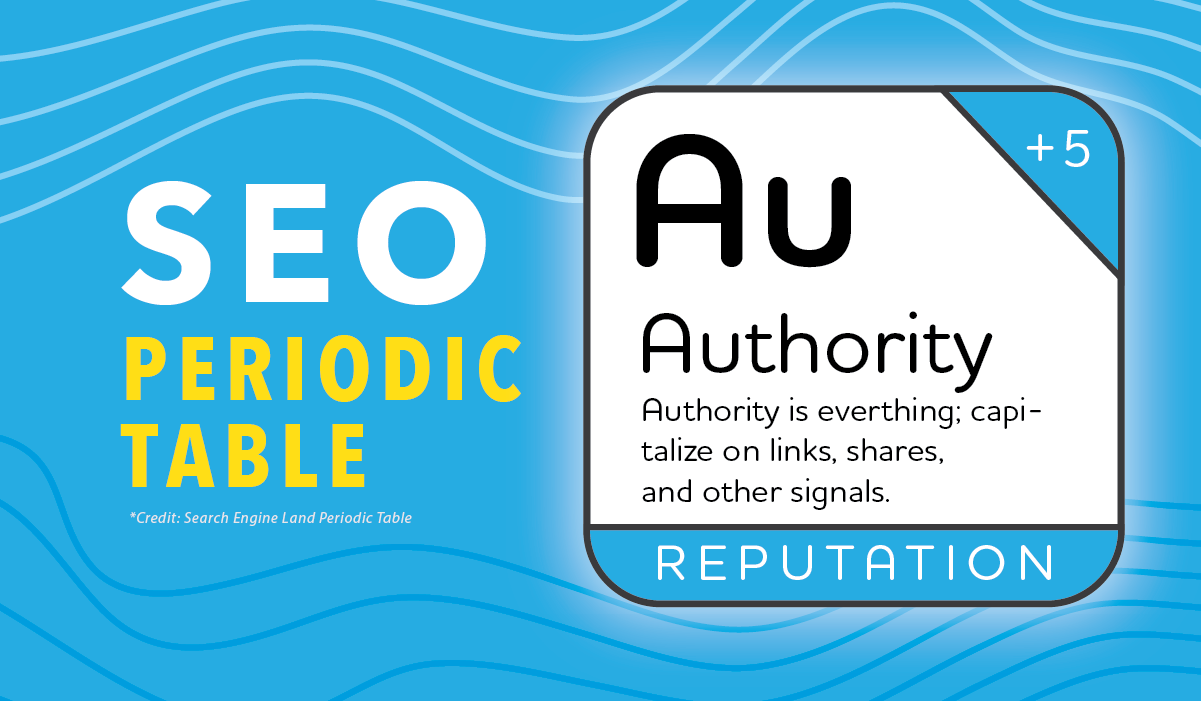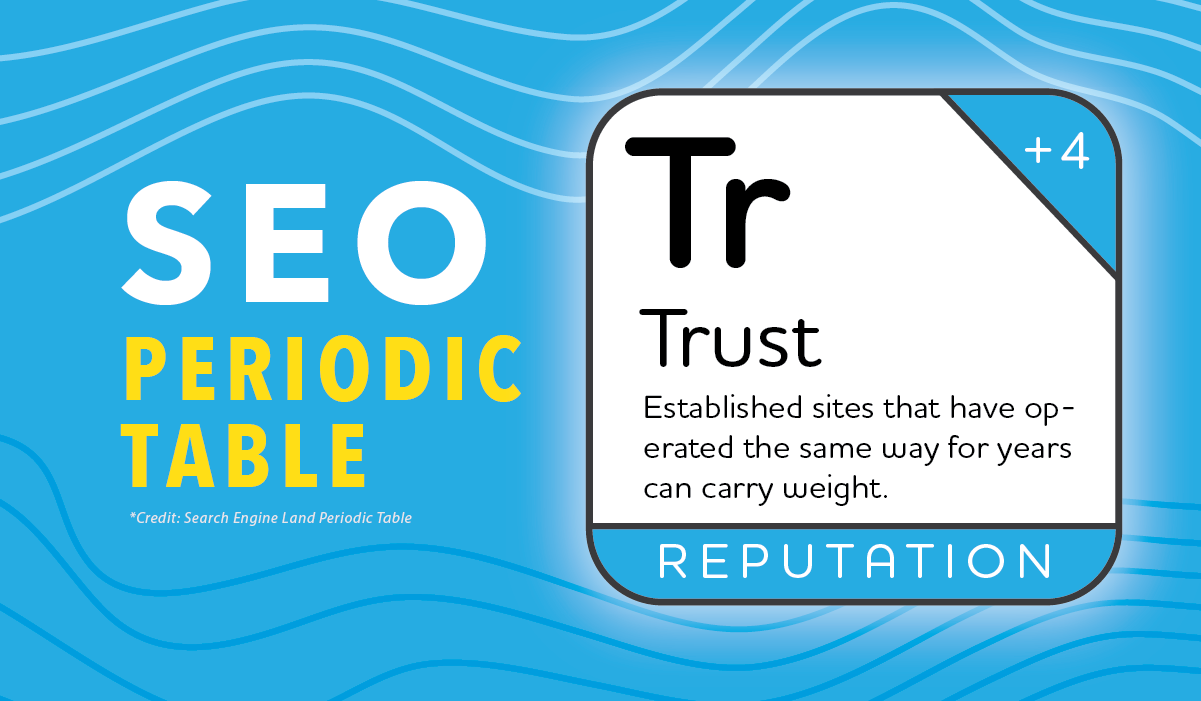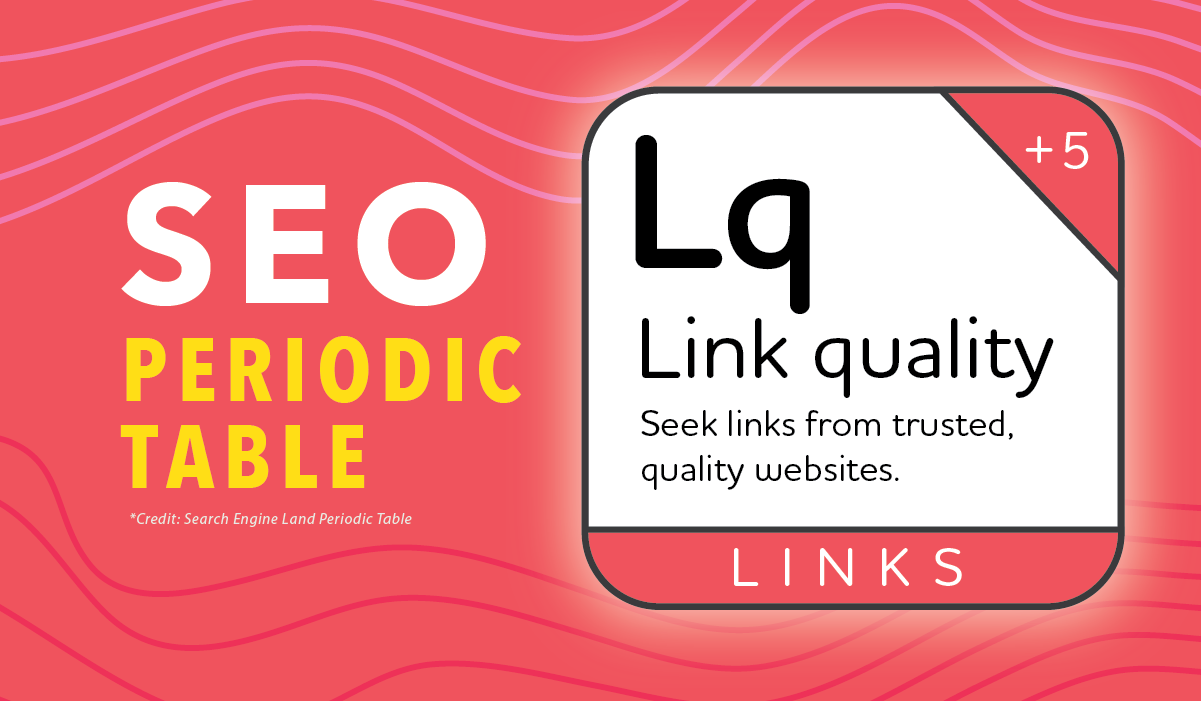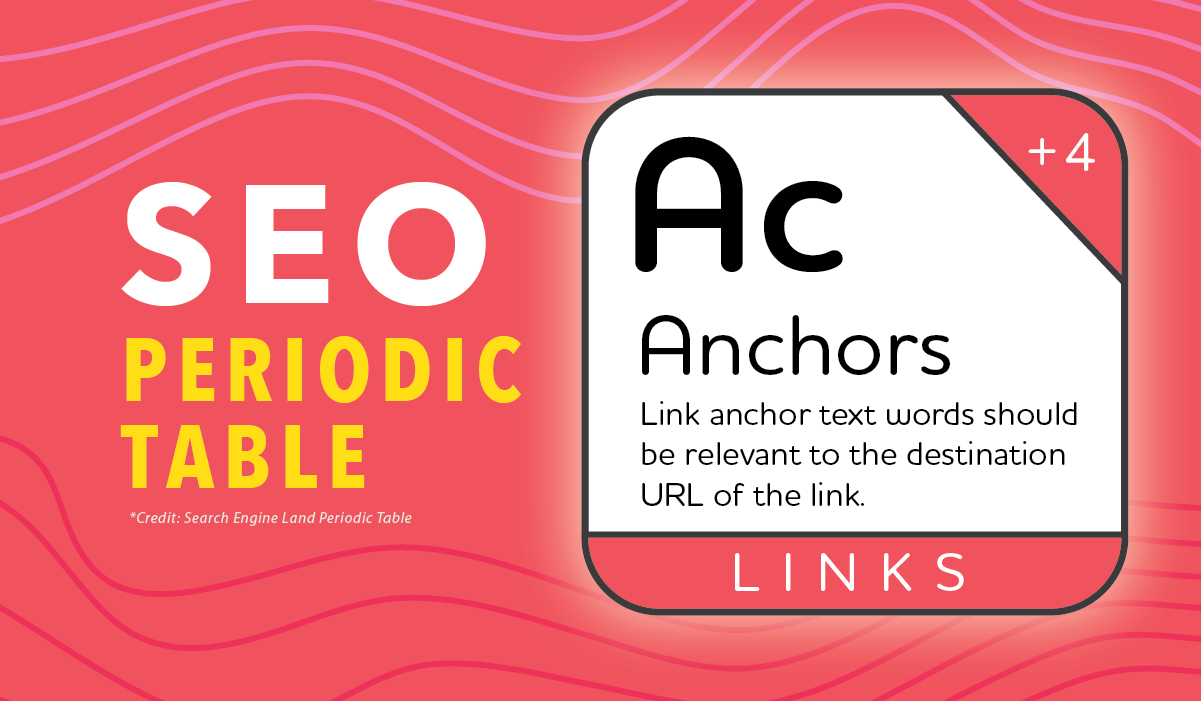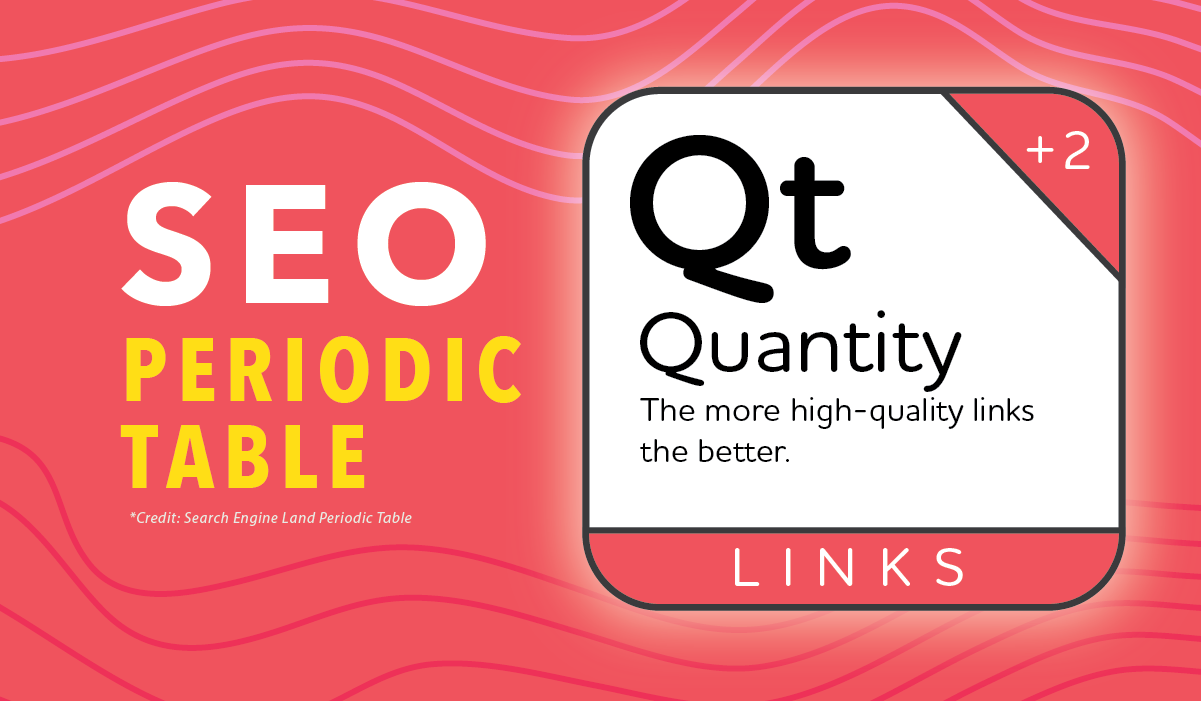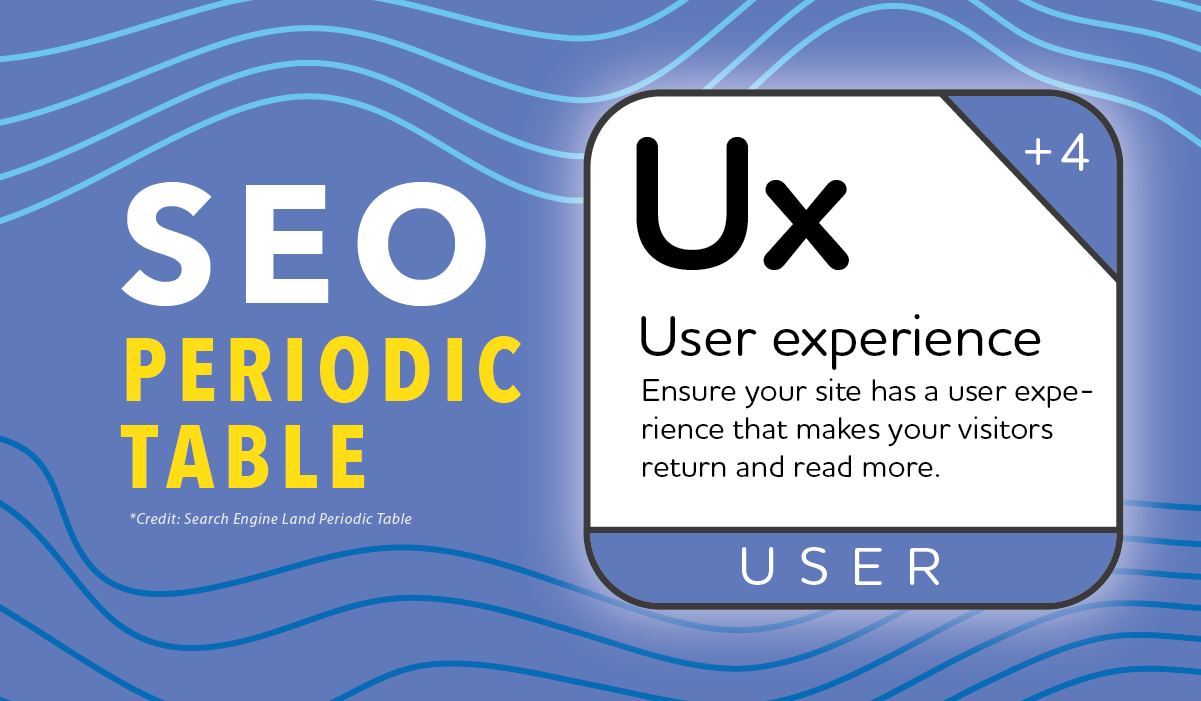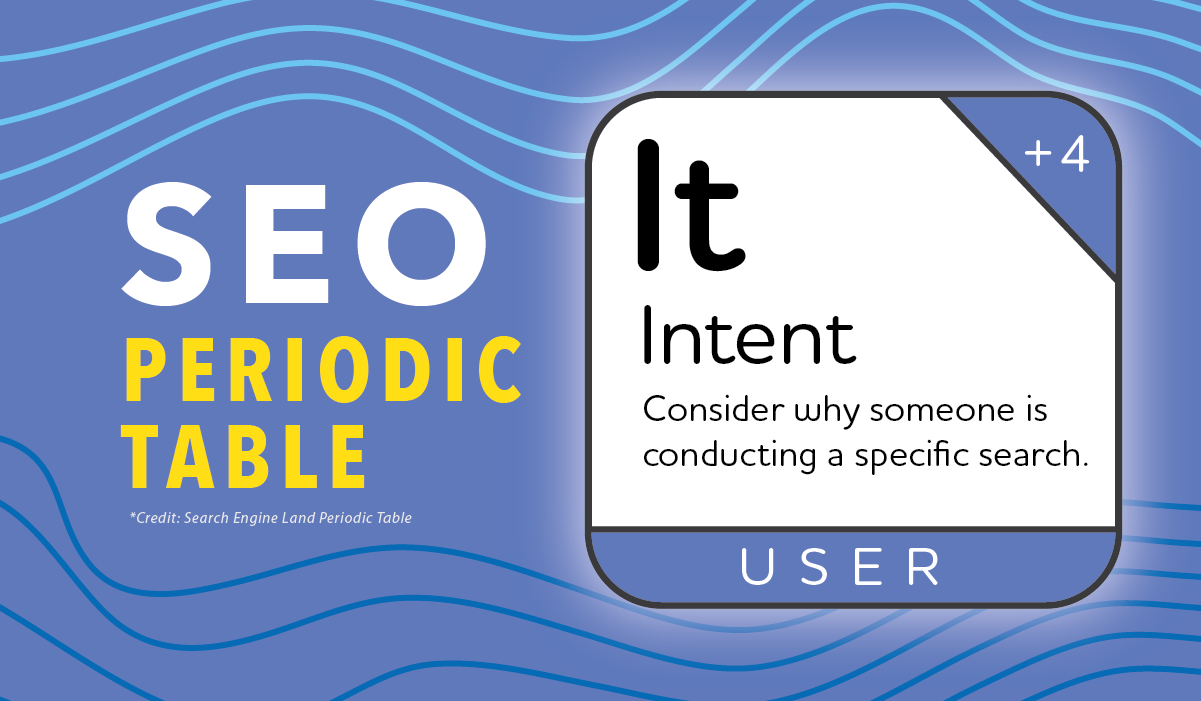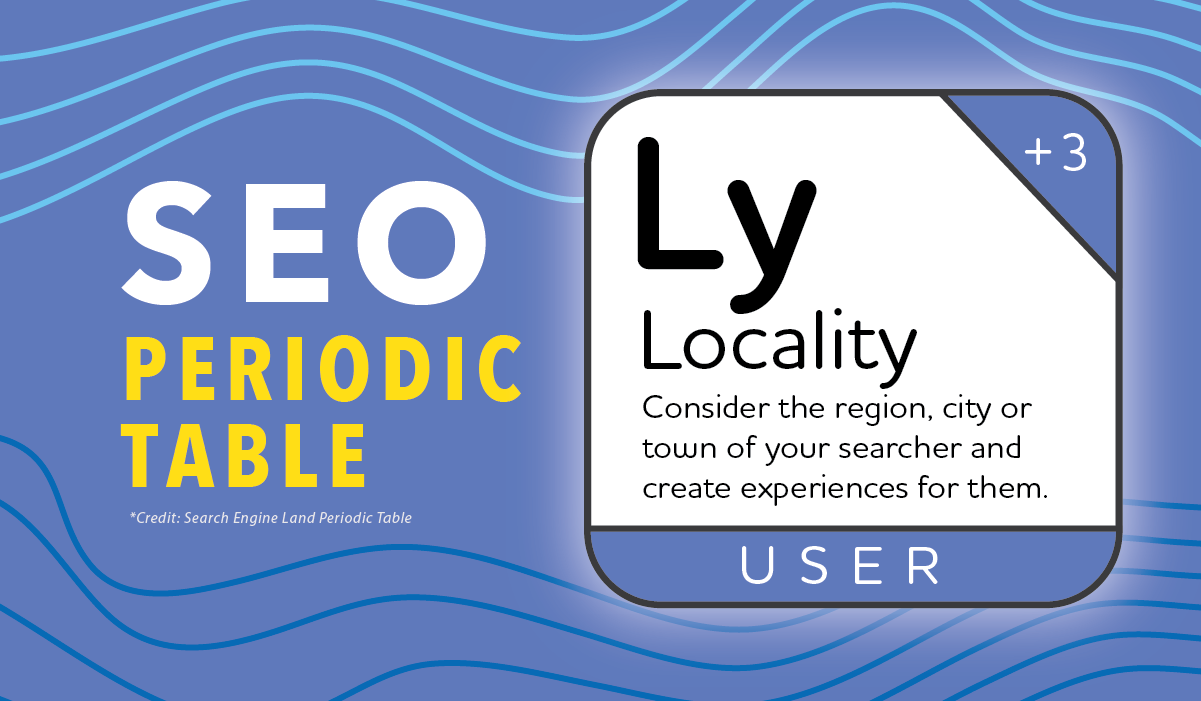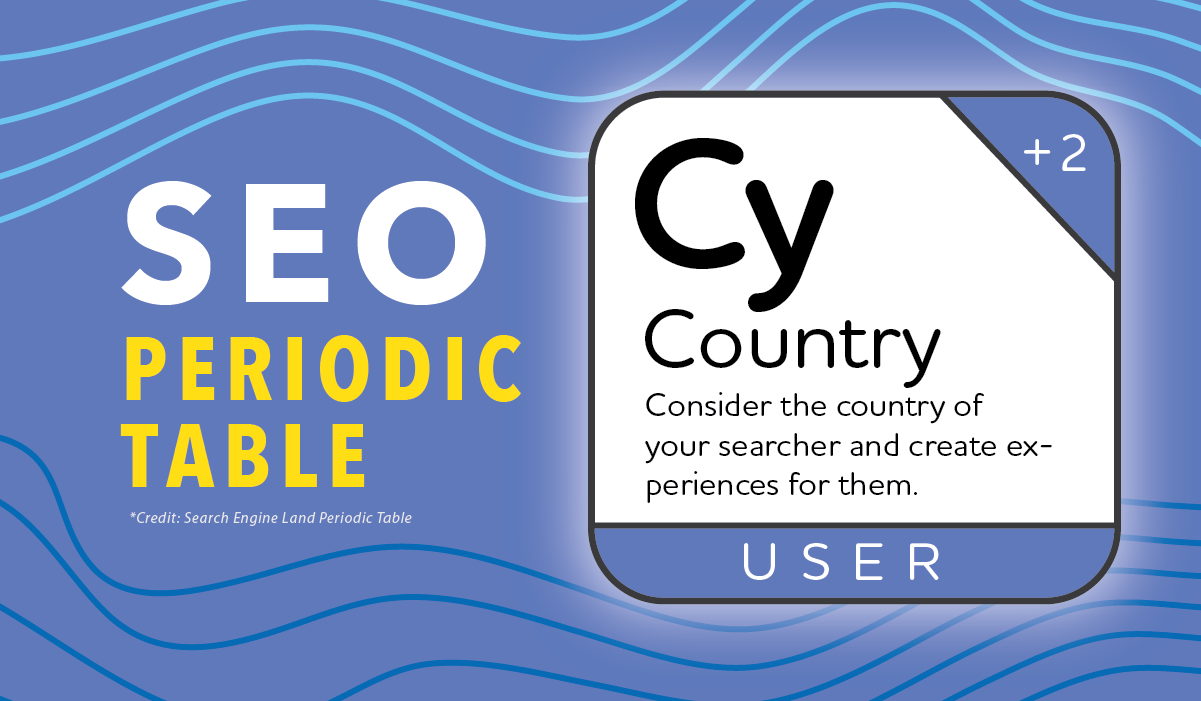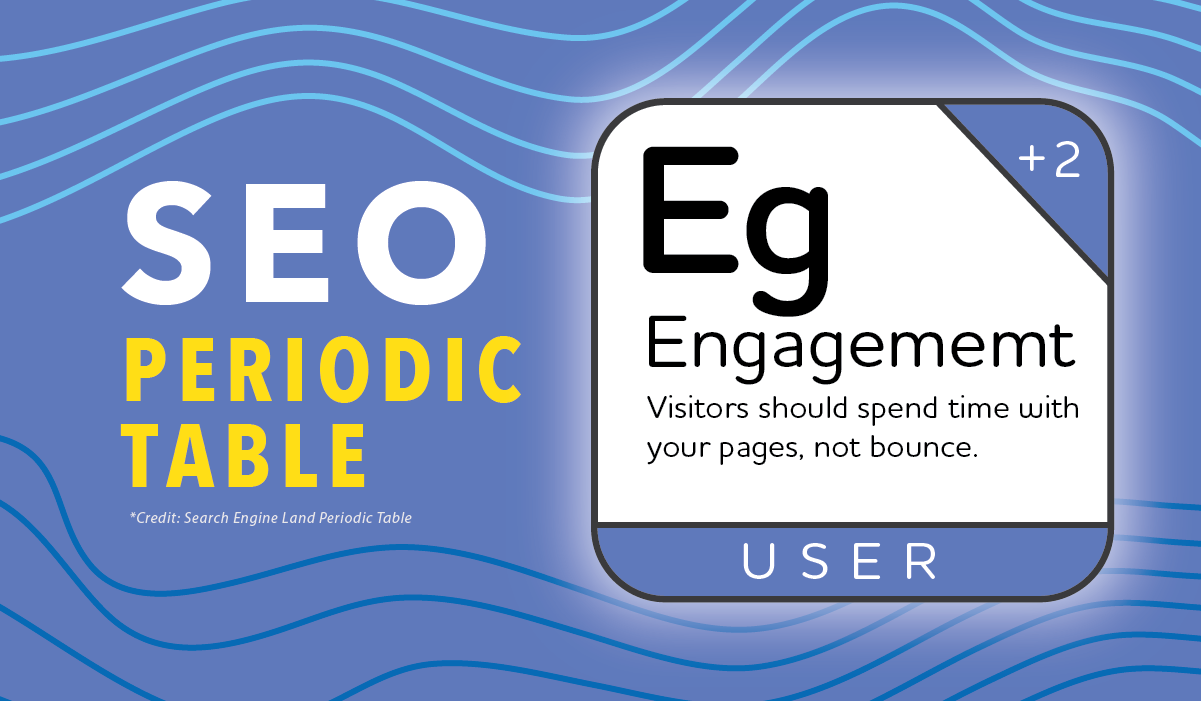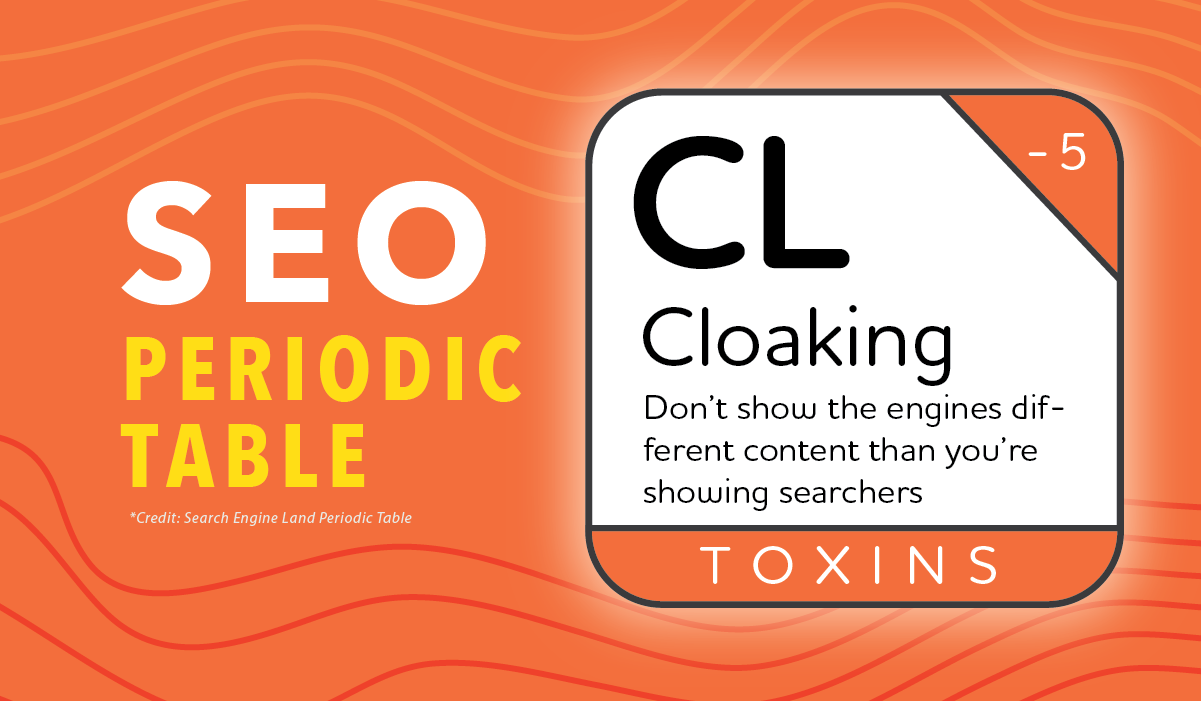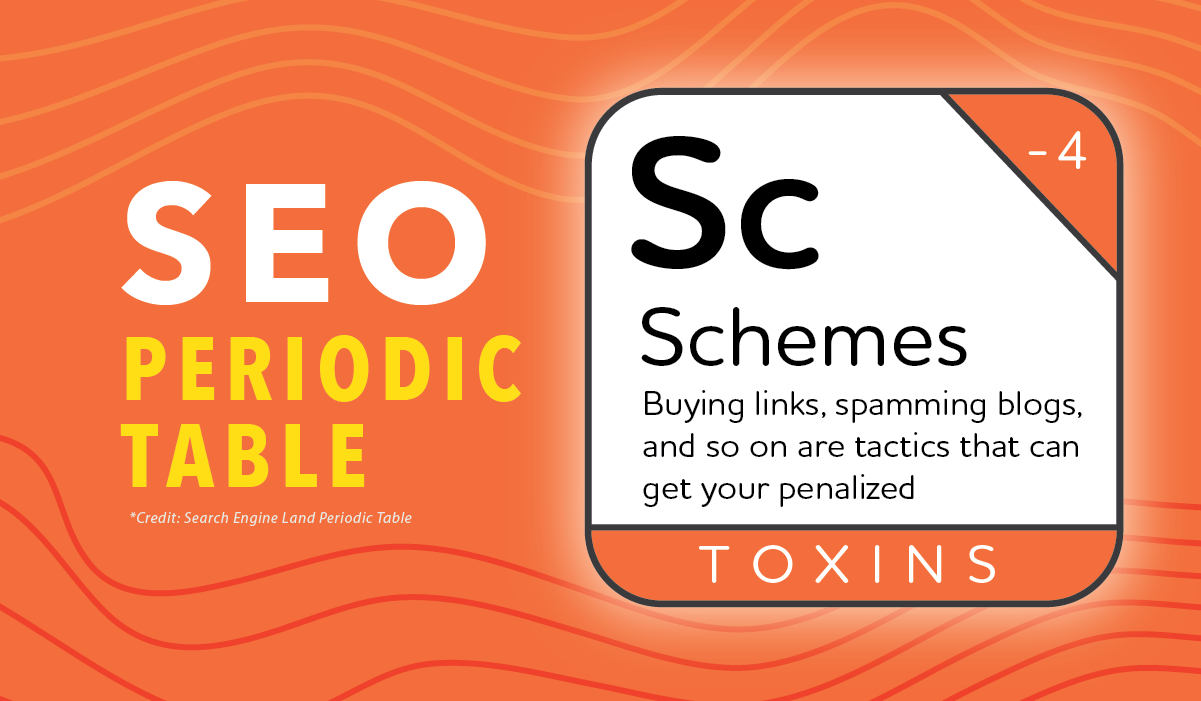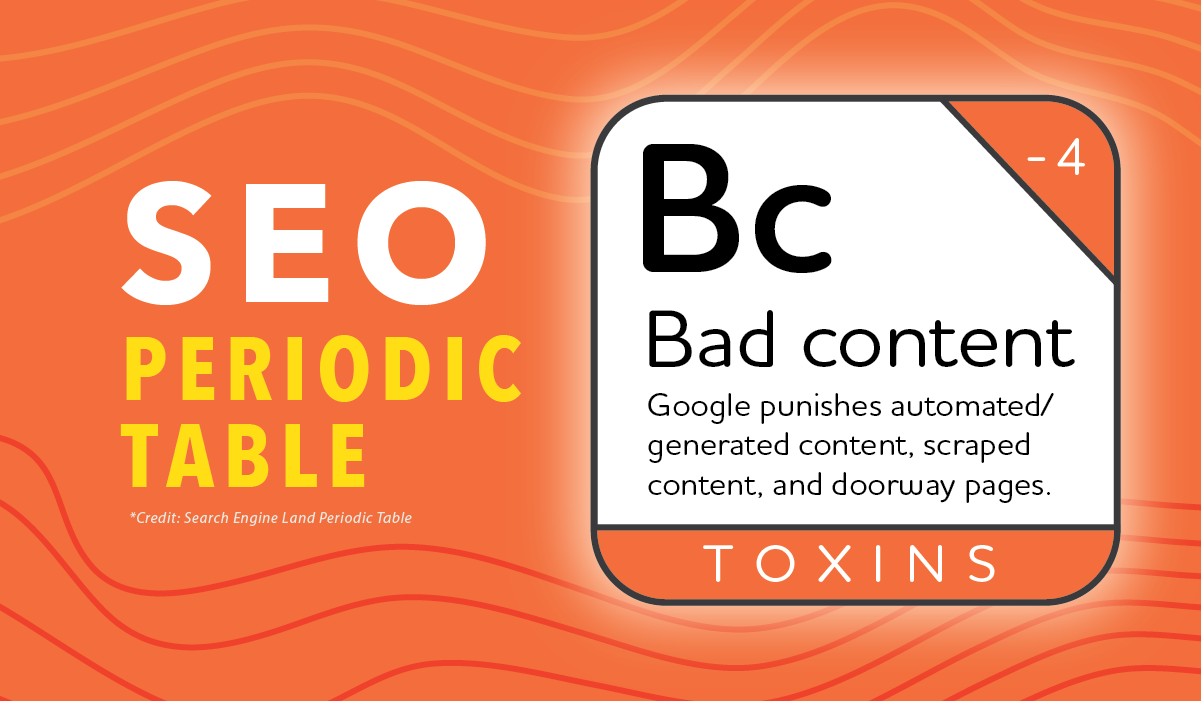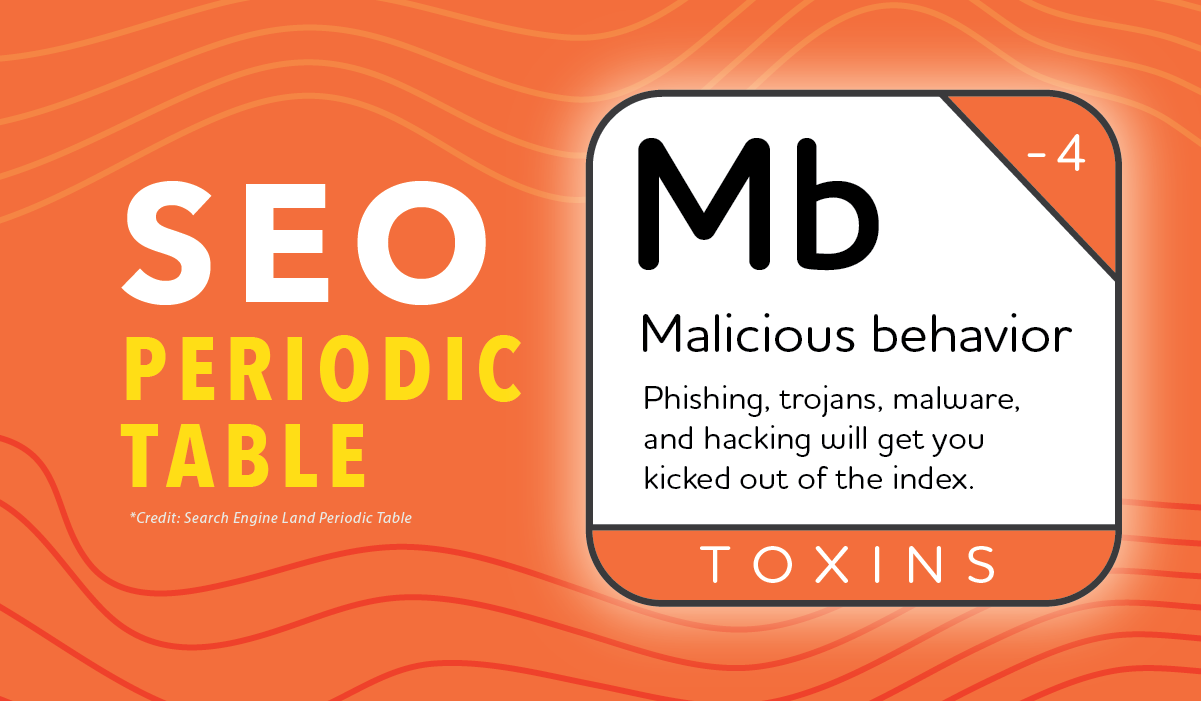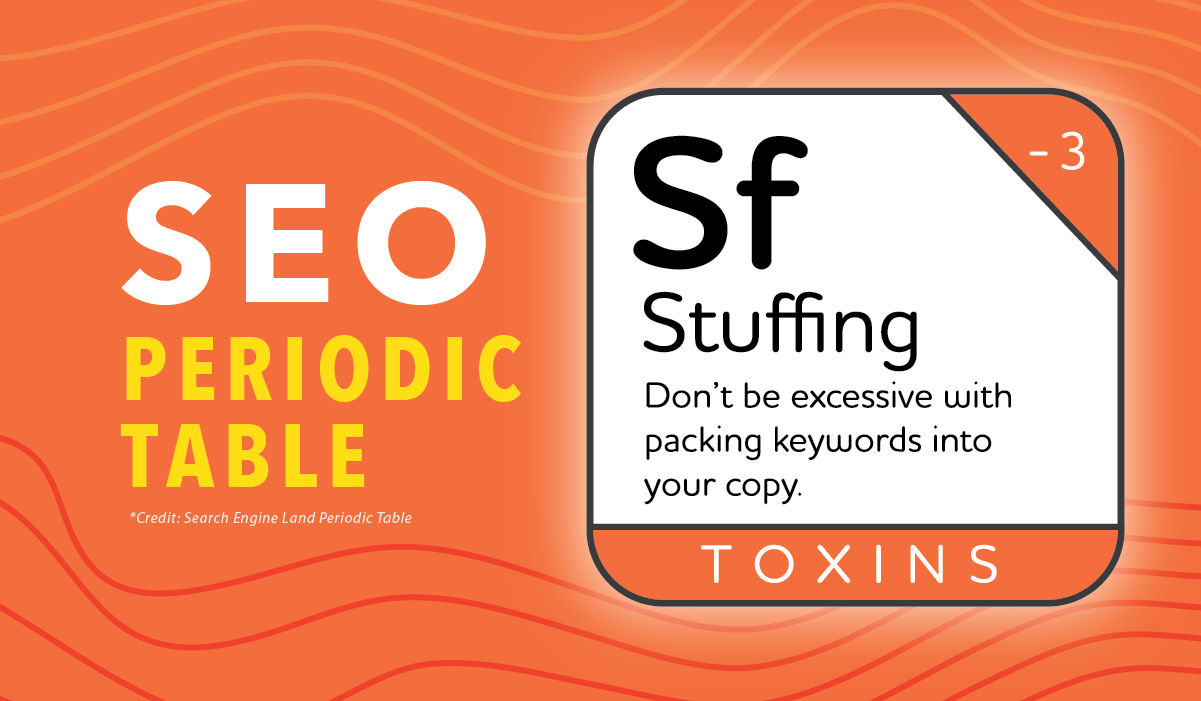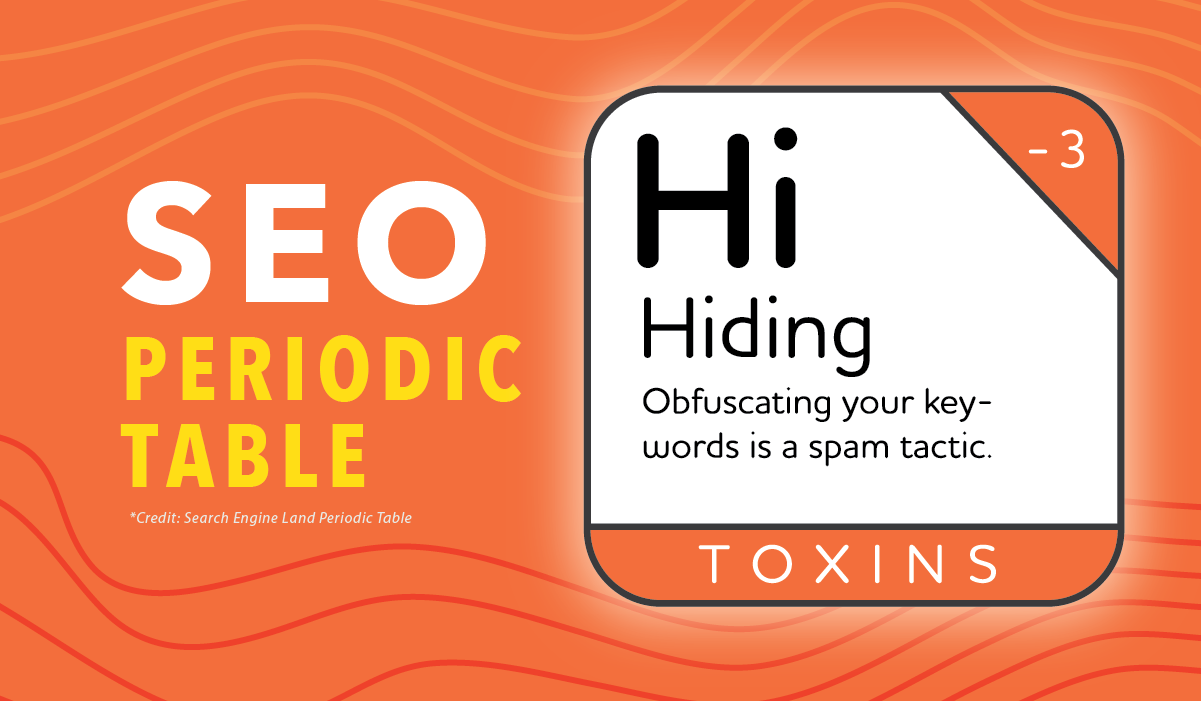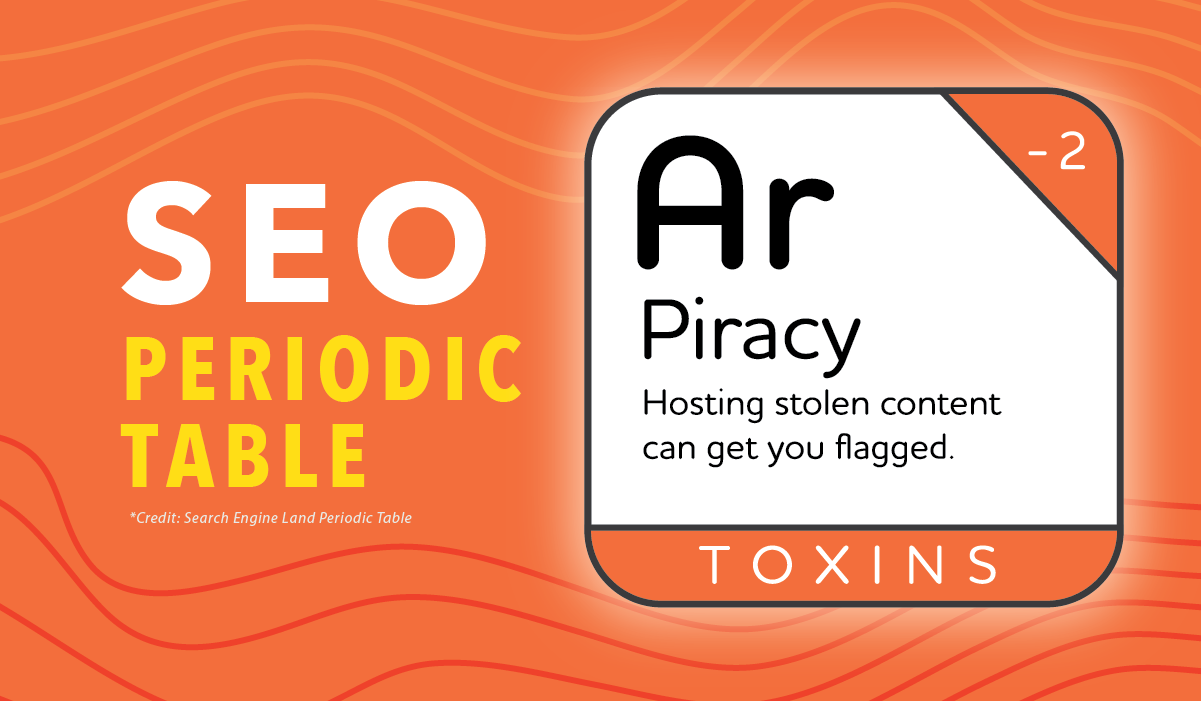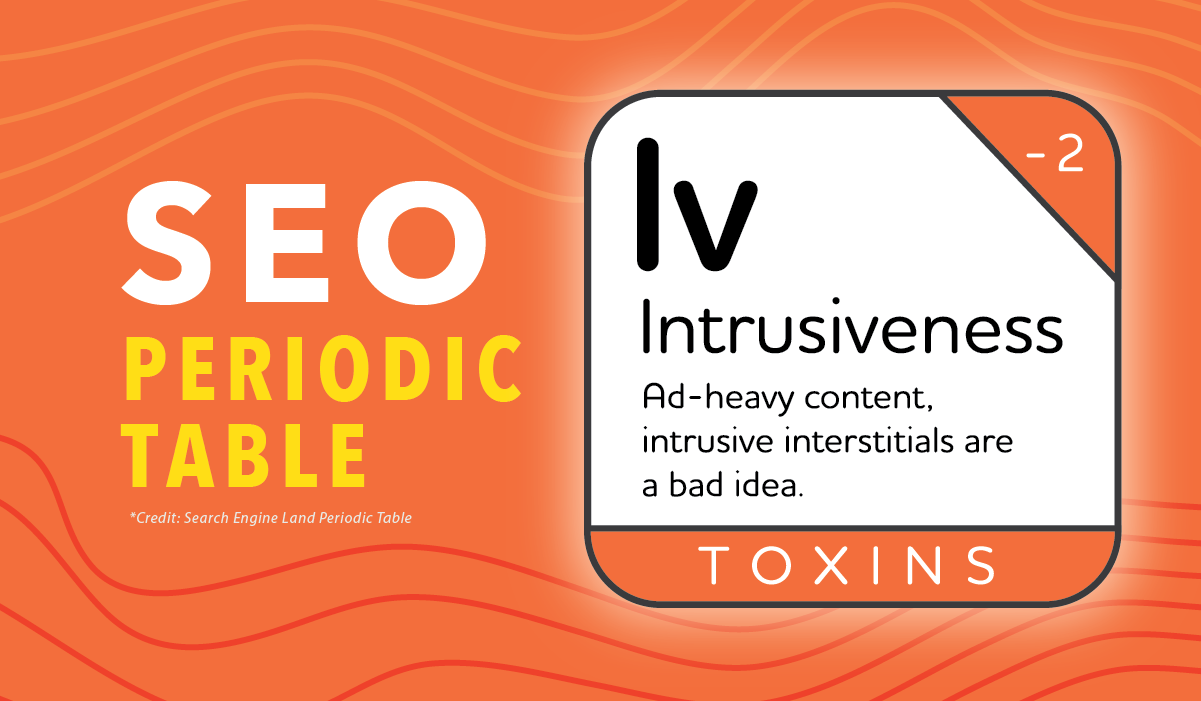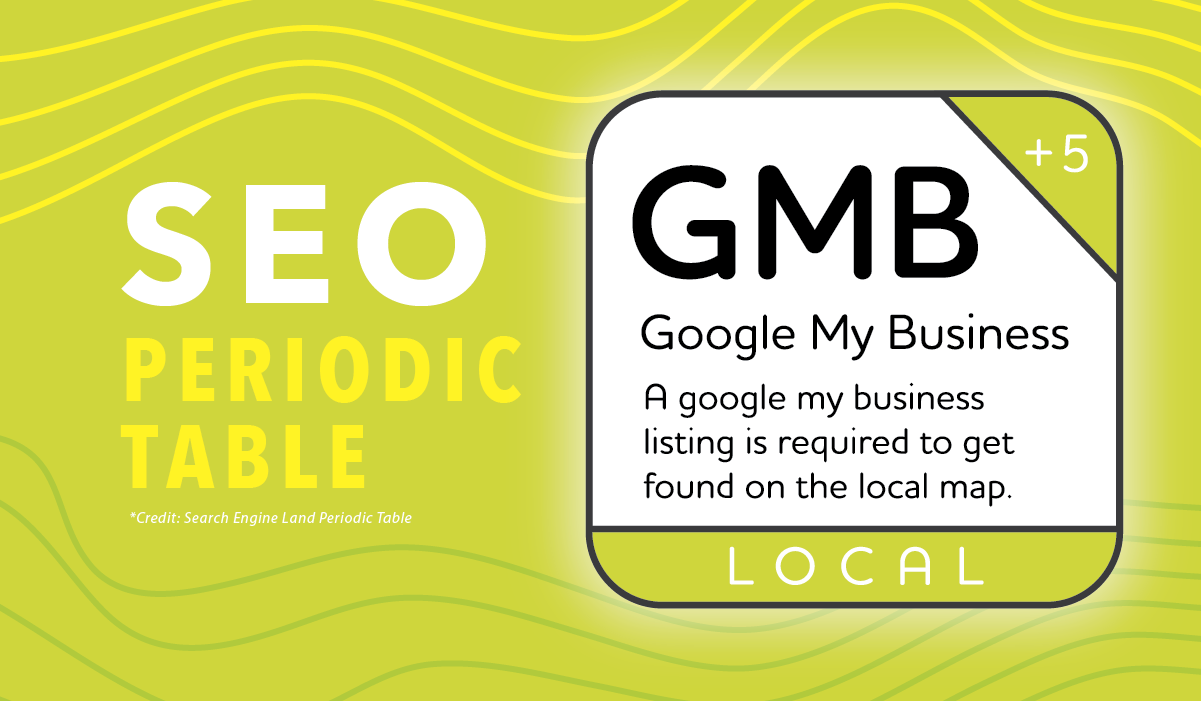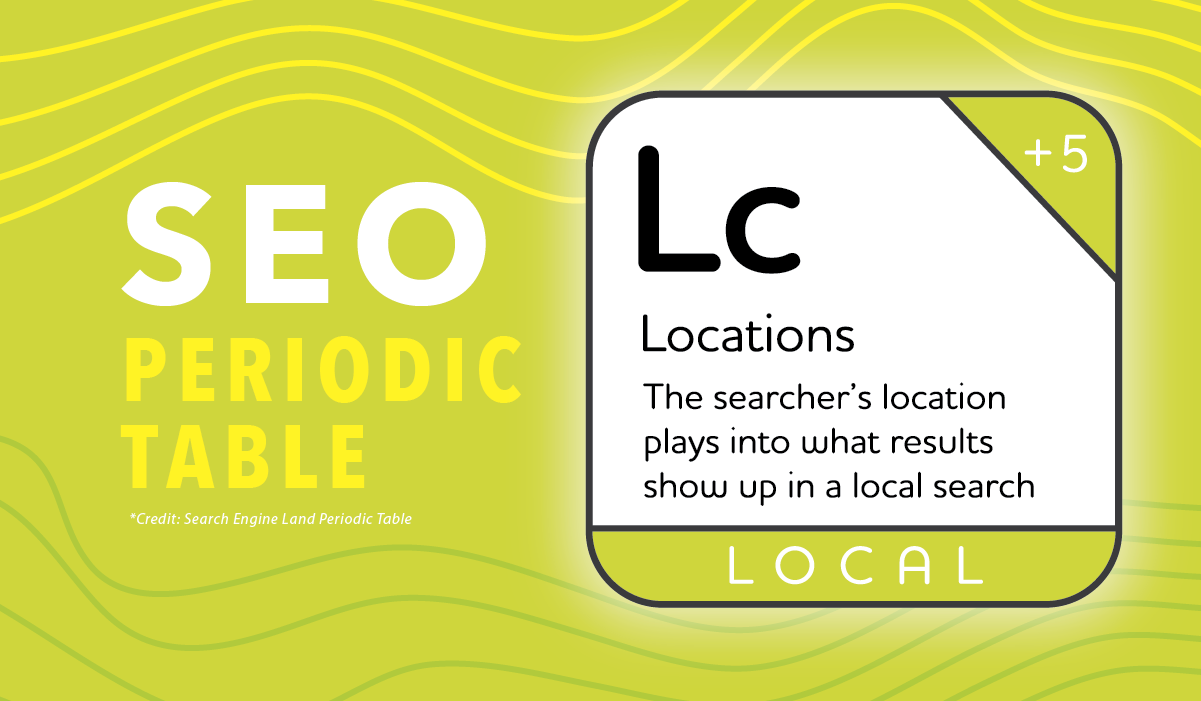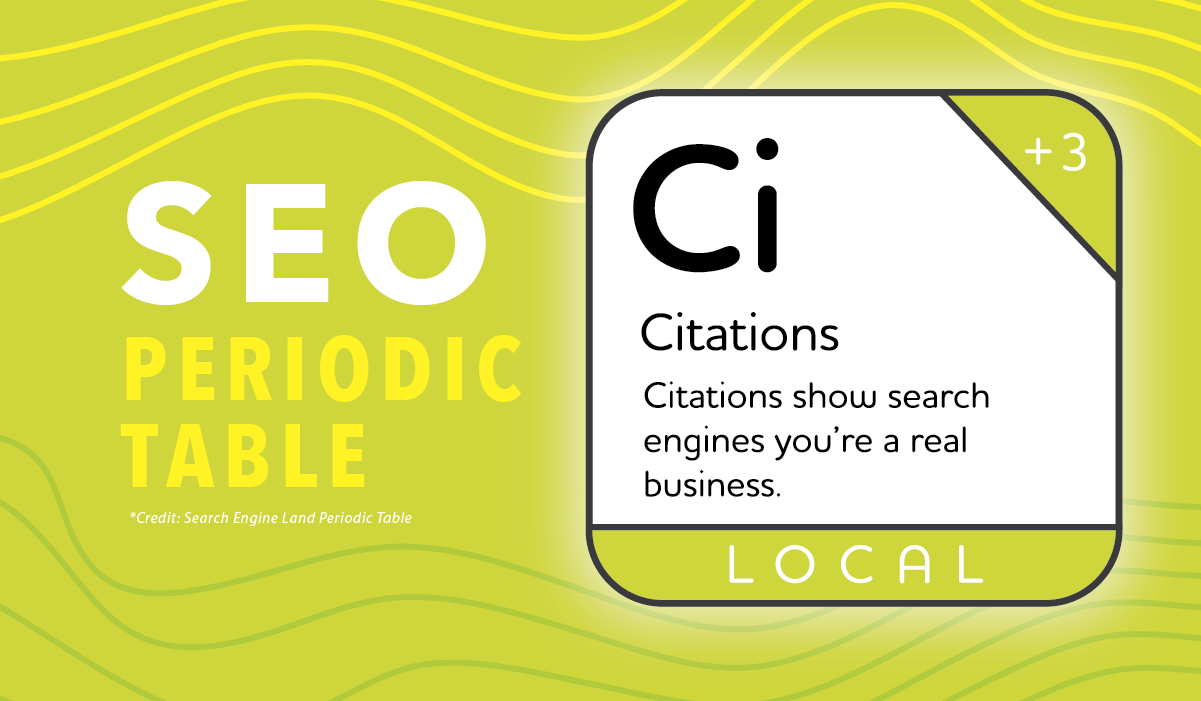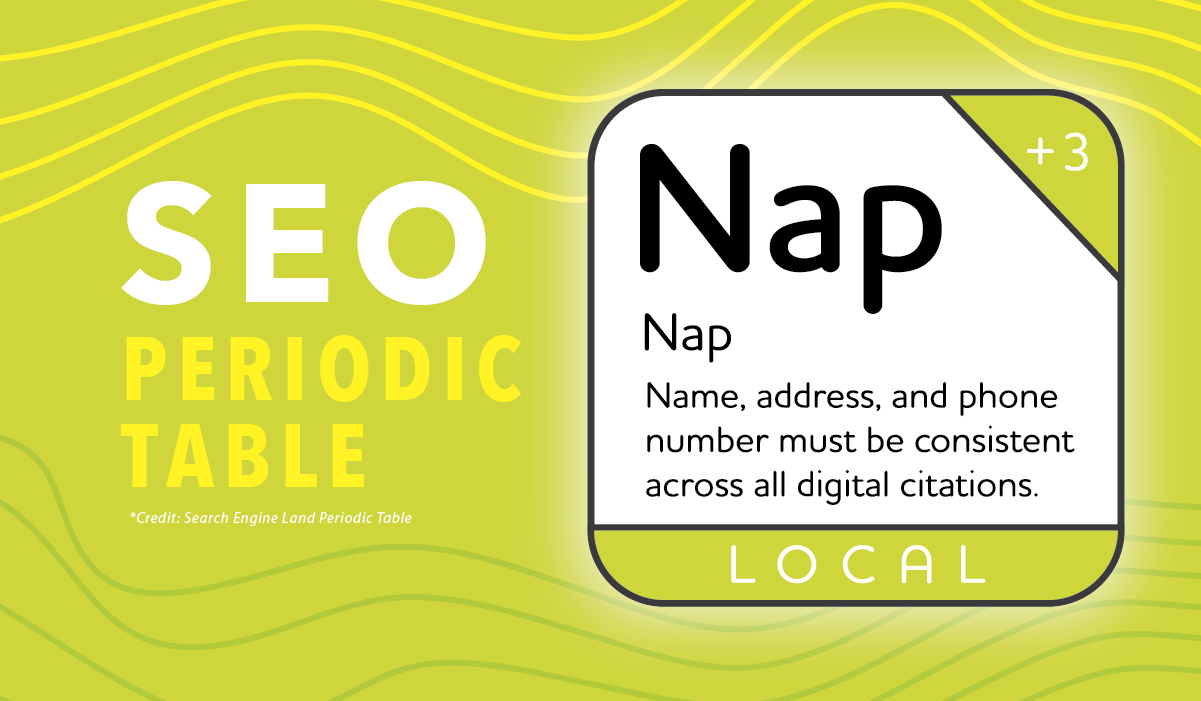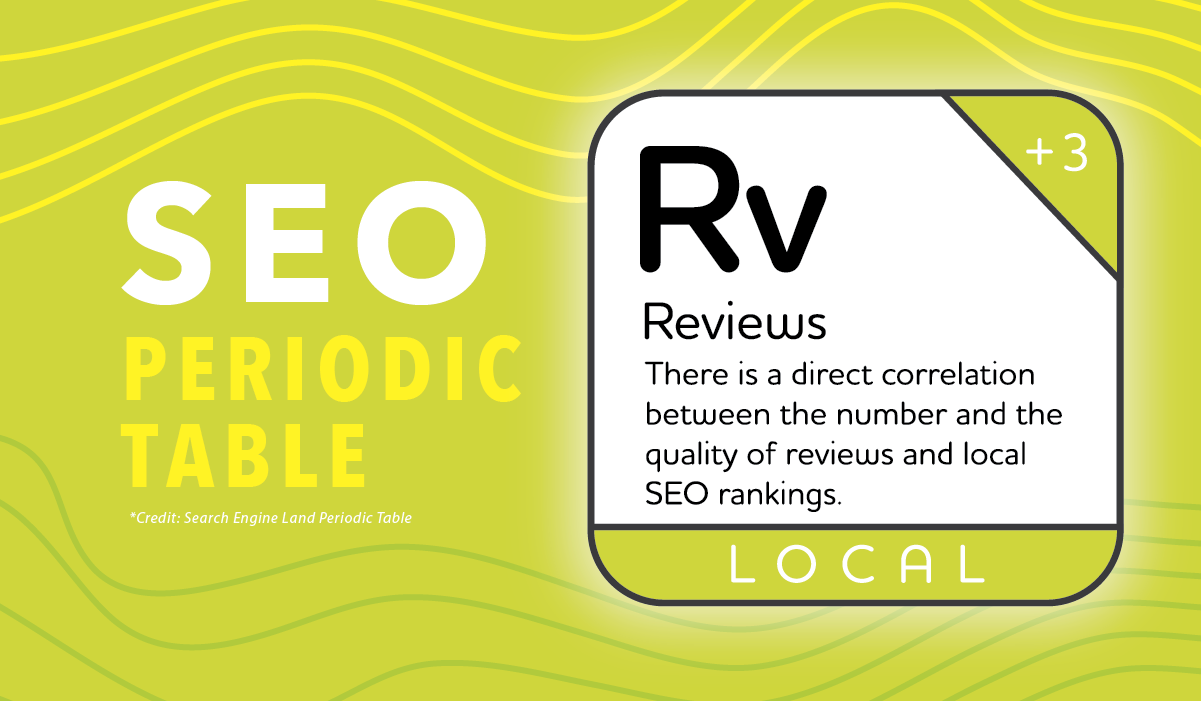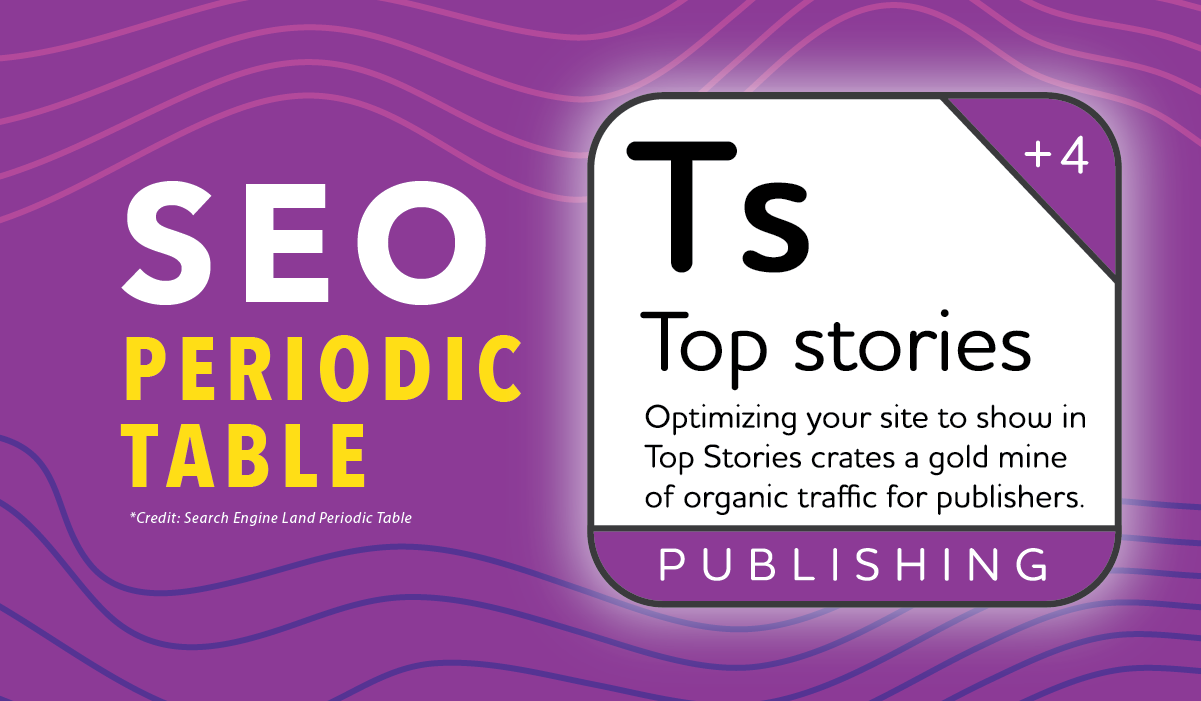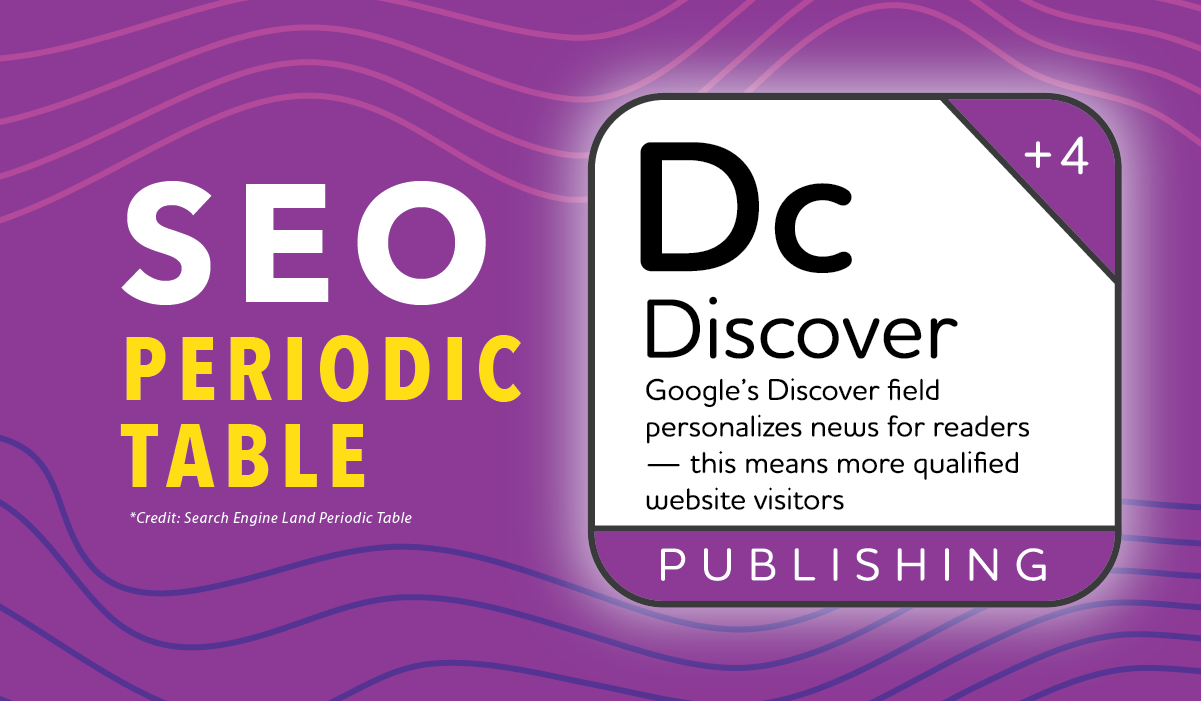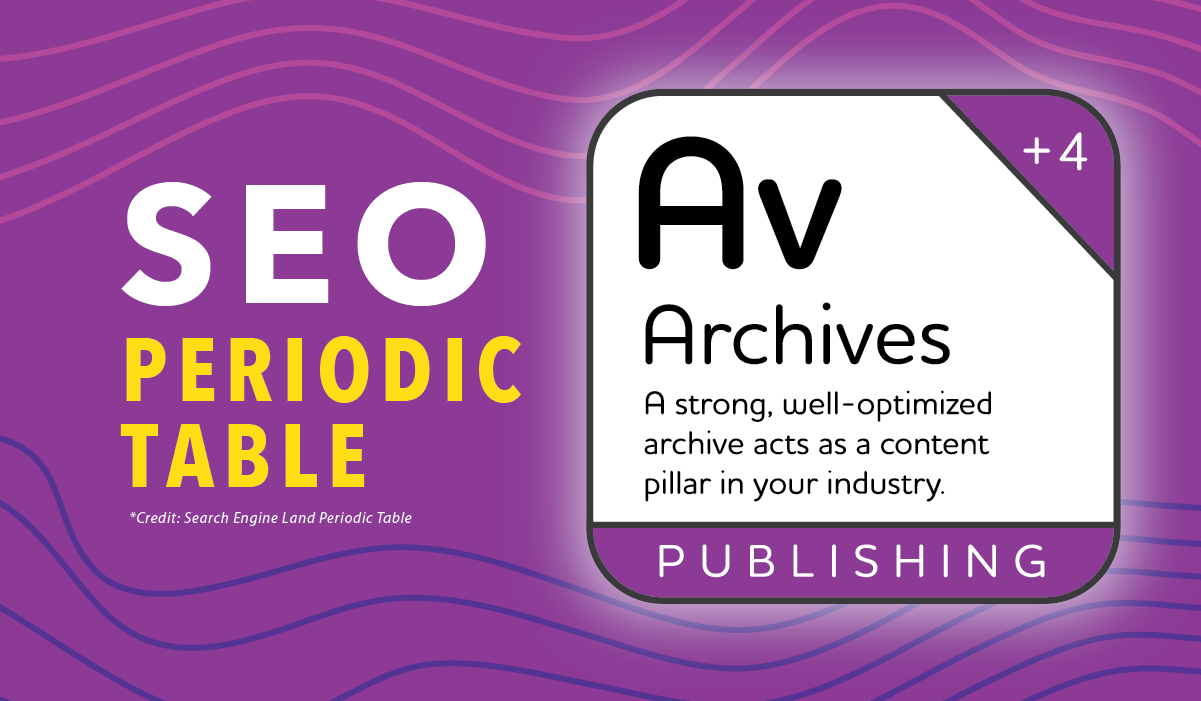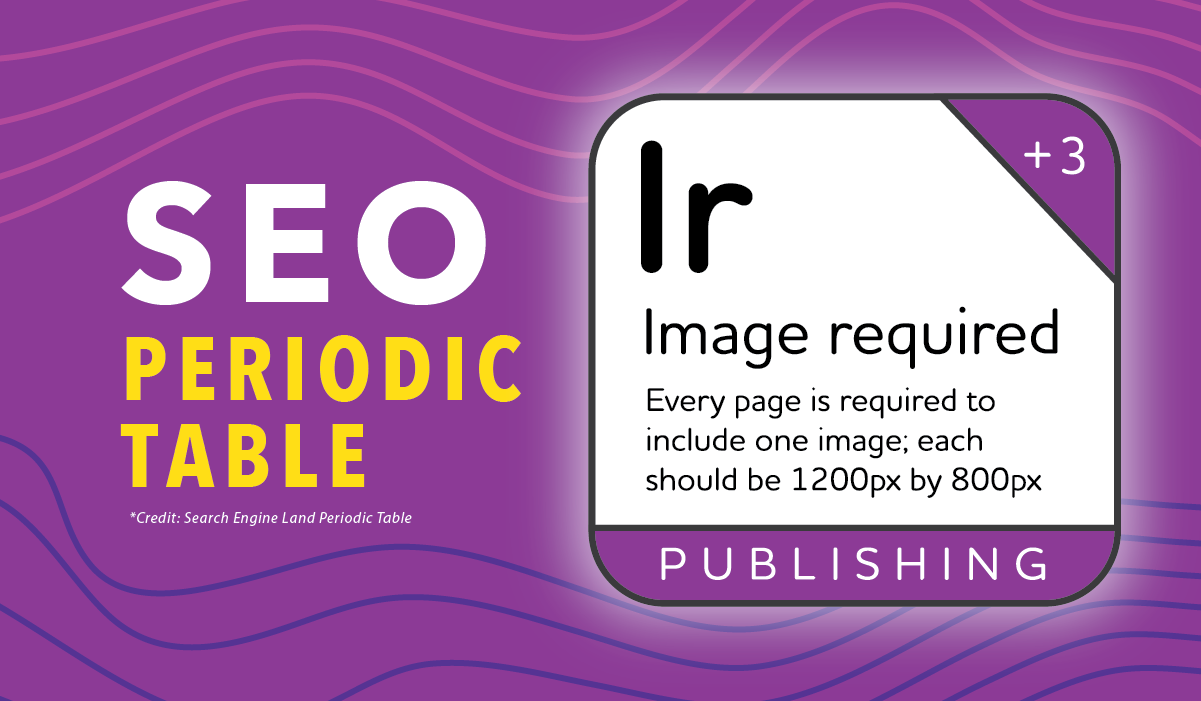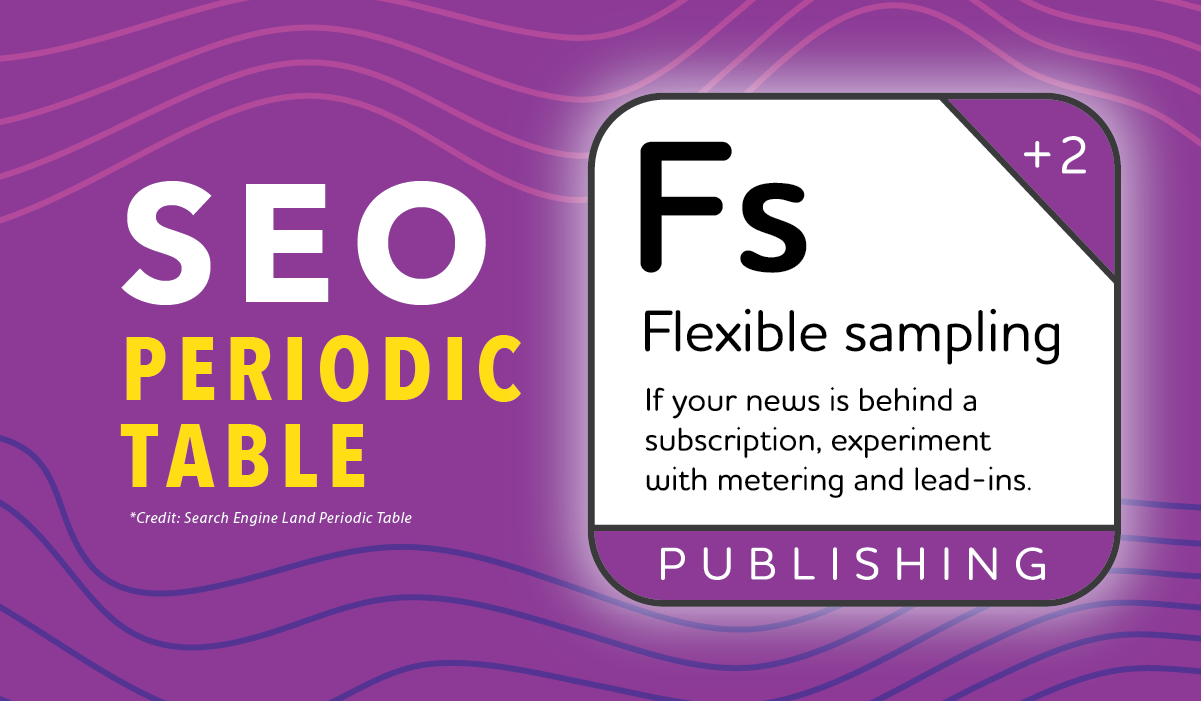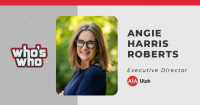The SEO Periodic Table: A Strategic Framework for AEC Firms
Search Engine Optimization (SEO) can feel overwhelming at first—like a web of mystery terms and strategies. But at its core, SEO is simply about helping the right people find your firm online.
To make it more approachable, Search Engine Land developed the SEO Periodic Table—a visual framework that breaks SEO into core elements, just like the periodic table of chemical elements. These elements fall into several key categories that work together to improve your website’s visibility and user experience.
Let’s break down the most important takeaways for AEC marketers and technical staff—and how you can put these insights to work.
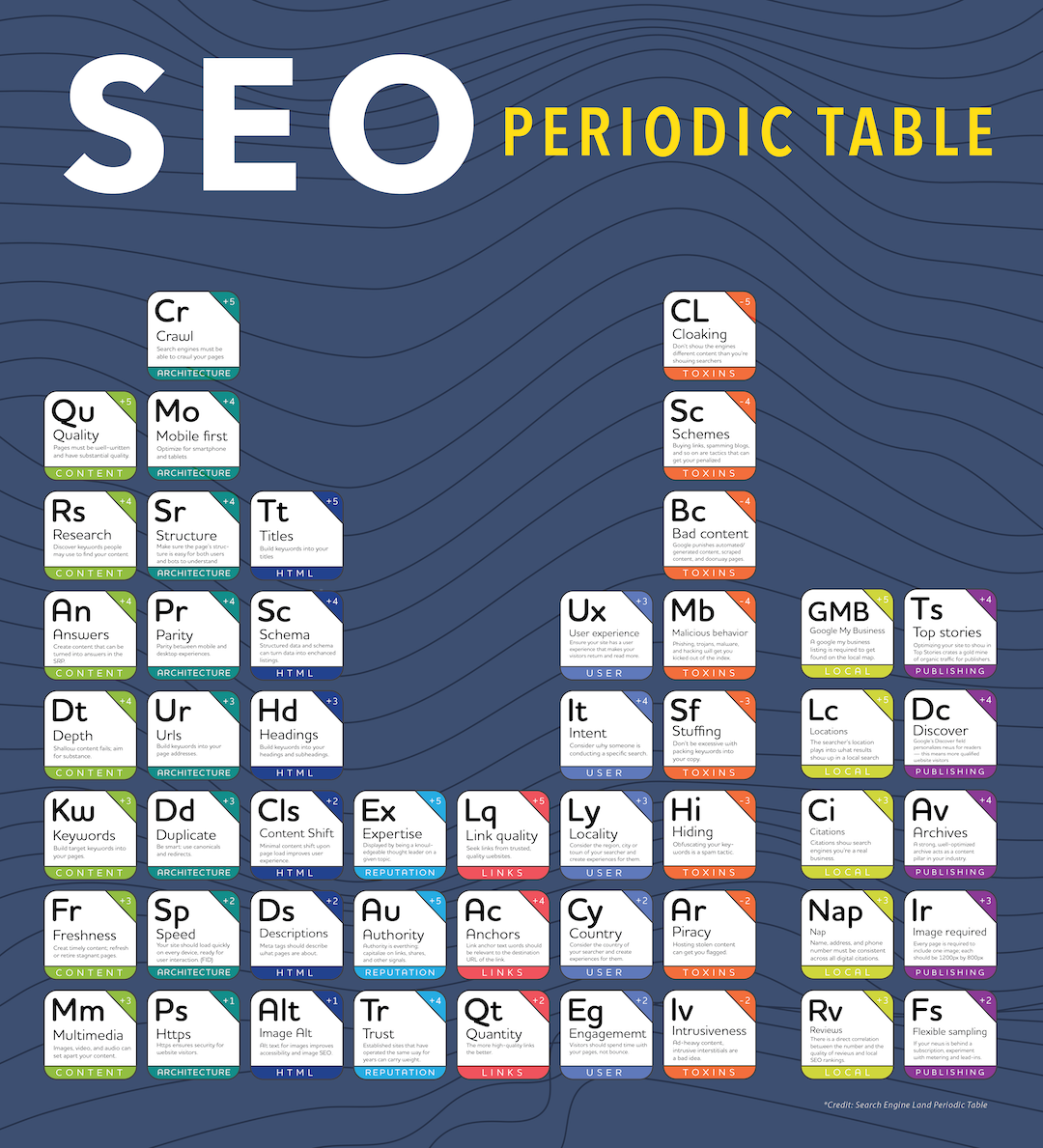
CONTENT: Tell Your Story with Impact
Content does more than fill a webpage—it demonstrates your firm’s knowledge, builds trust, and signals authority.
|
Qu: Quality Well-written, original content drives credibility |
Rs: Research Align your content with the terms your audience |
|
An: Answers Structure content to answer questions and |
Dt: Depth Go beyond surface-level—deep content shows |
|
Kw: Keywords Use target keywords naturally in your content. |
Fr: Freshness Update content regularly to maintain its value. |
|
Mm: Multimedia Visuals and media can improve engagement |
Explore the full breakdown in our SEO Content article.
ARCHITECTURE: Make Your Website Easy to Explore
Good structure benefits both your users and search engines. A strong foundation improves crawlability, navigation, and speed.
|
Cr: Crawl Ensure search engines can access and index |
Mo: Mobile First Design for smartphones and tablets as your |
|
St: Structure Use logical hierarchies and consistent layouts. |
Pr: Parity Keep content consistent across all devices. |
|
Ur: URLs Incorporate readable, keyword-rich URLs. |
Dd: Duplicates Avoid duplicate content and apply redirects |
|
Sp: Speed Load time affects both rankings and user |
Ps: HTTPS Secure your site to build trust with users and |
See more in our Architecture SEO guide.
HTML: Help Search Engines Understand Your Site
SEO is about more than what’s visible—technical details help search engines interpret and display your content properly.
|
Tt: Titles Clear, keyword-based titles are essential. |
Sc: Schema Use structured data to enable rich results. |
|
Hd: Headings Headings organize content for both readers and |
Cls: Content Shift Limit visual shifts on page load for better |
|
Ds: Descriptions Well-written meta descriptions drive higher |
Alt: Image Alt Descriptive image tags improve accessibility |
Learn how to balance all these factors in our HTML SEO breakdown.
REPUTATION: Earn Trust and Authority
Search engines look for signals that your firm is credible and your content is worth ranking.
|
Ex: Expertise Show you're a thought leader with deep industry |
Au: Authority Quality backlinks and brand mentions matter. |
|
Tr: Trust Consistent, professional web presence earn |
We cover this in-depth in our SEO Reputation guide.
LINKS: Strengthen Your Digital Network
Link strategies help search engines understand what’s important and build credibility across the web.
|
Lq: Link Quality Earn backlinks from respected, relevant sources. |
Ac: Anchors Use descriptive anchor text to clarify the link’s |
|
Qt: Quantity A natural, growing number of quality links
|
Explore more in our Link Strategy article.
USER: Design with Your Audience in Mind
SEO must match user expectations—why they’re searching, where they are, and what they need.
|
Ux: User Experience A seamless, intuitive site keeps users engaged. |
It: Intent Understand and match the user’s search intent. |
|
Ly: Locality Tailor experiences to the user’s region. |
Cy: Country Consider content needs for international |
|
Eg: Engagement Time on site and interaction signal value to |
Learn to optimize for users in our SEO User Behavior guide.
TOXINS: What to Avoid
Certain tactics can hurt your SEO—or worse, get your site penalized.
|
Cl: Cloaking Don’t show different content to bots and users. |
Sc: Schemes Avoid link buying and other black-hat tactics. |
|
Bc: Bad Content Thin, scraped, or spammy content is a red flag. |
Mb: Malicious Behavior Malware and phishing will tank your rankings. |
|
Sf: Stuffing Keyword stuffing is outdated and ineffective. |
Hi: Hiding Hiding keywords in code is considered spam. |
|
Ar: Piracy Hosting stolen content puts your site at risk. |
Iv: Intrusiveness Too many ads or pop-ups frustrate users and |
See how to avoid common mistakes in our SEO Toxins overview.
Niches
LOCAL: Get Found Where You Work
For AEC firms serving specific geographies, local search optimization is key.
|
Gmb: Google My Business Essential for appearing in map and location- |
Lc: Locations Make sure your location data is accurate and |
|
Ci: Citations Consistency in business listings confirms |
Nap: NAP Ensure your name, address, and phone number |
|
Rv: Reviews Positive reviews build trust and boost rankings. |
Optimize for local search with our Local SEO guide.
PUBLISHING: Extend Your Reach
How and where you publish affects visibility—especially in news and content discovery tools.
|
Ts: Top Stories Structured, timely content can appear in |
Dc: Discover Reach users through Google Discover for |
|
Av: Archives Well-organized archives act as long-term |
Ir: Image Required Include quality images to meet publishing |
|
Fs: Flexible Sampling Offer content previews if using paywalls or |
Read our full guide to SEO for Publishing.
Putting It All Together
SEO success doesn’t happen overnight, but it doesn’t have to be mysterious. By focusing on these foundational elements, AEC firms can build a strong digital presence that reflects the quality of their work and helps more people discover it.
Start by assessing your current site. Are you creating quality content? Is your site fast and mobile-friendly? Do you have a clear structure and solid backlinks?
Just like in design and construction, every element matters—and when all the parts work together, the results speak for themselves.

